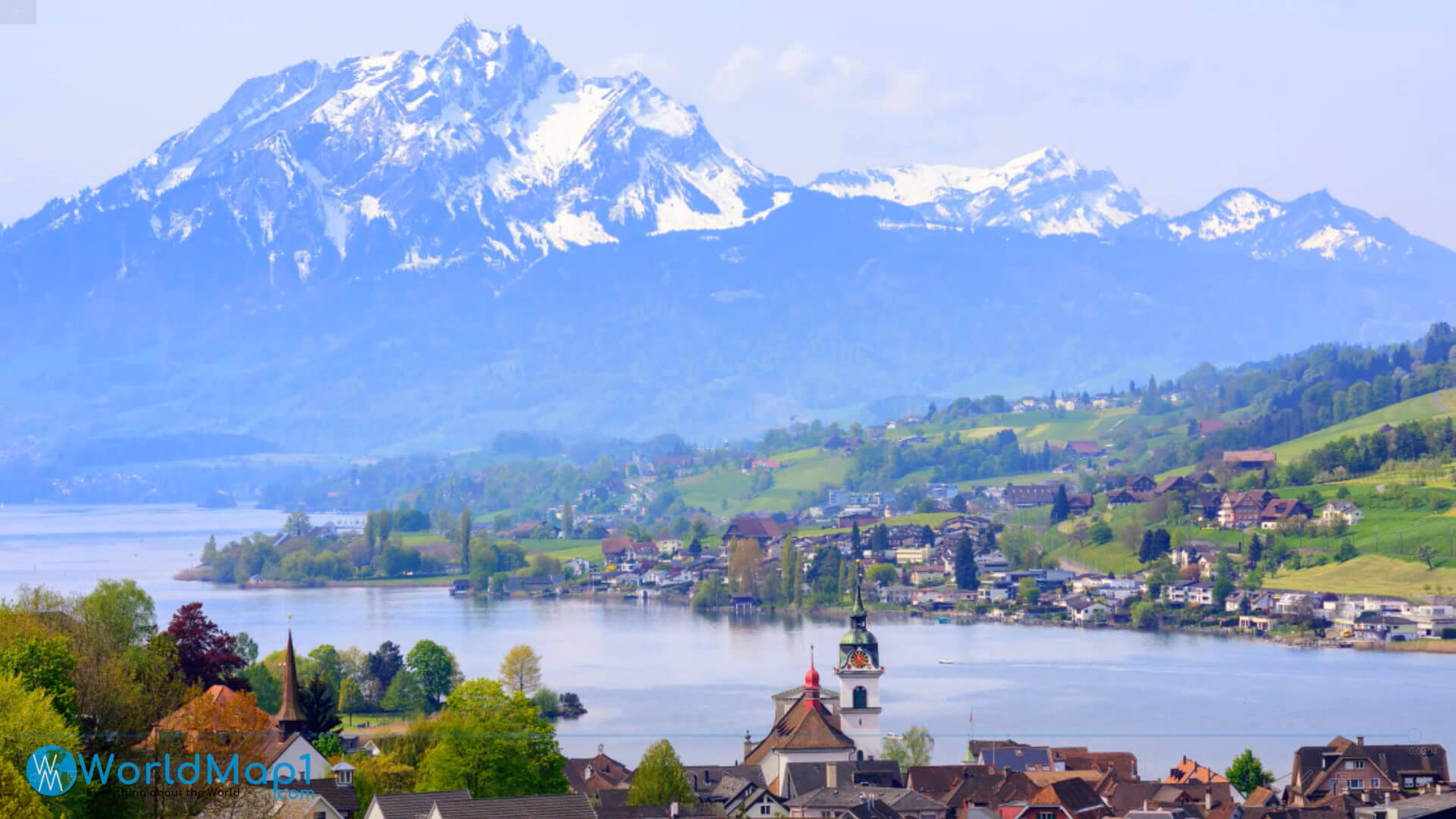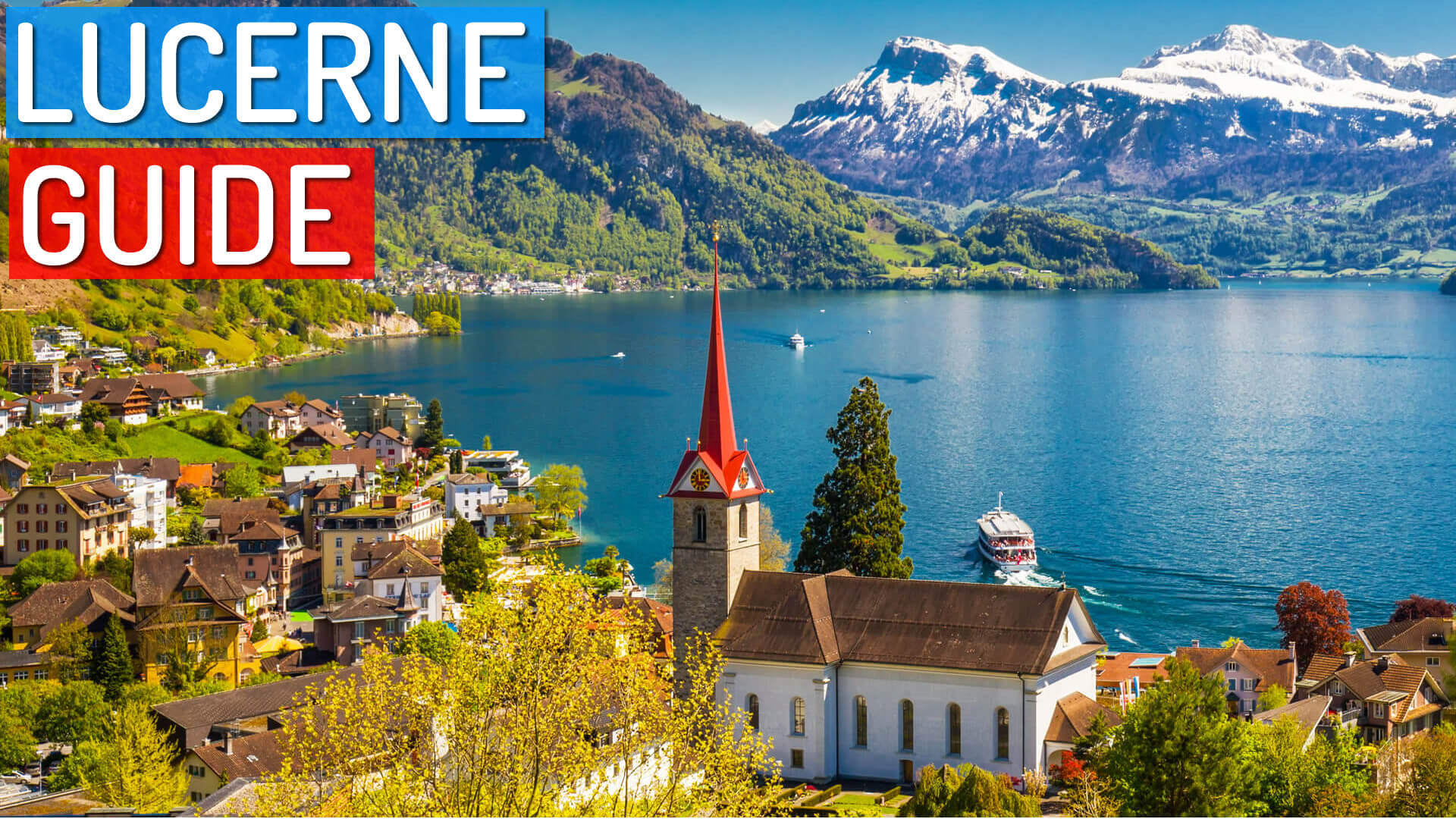Discover Lausanne and City Travel Guide on WorldGuide Youtube Channel
Please subscribe on "World Guide" channnel on Youtube at youtube.com/c/WorldGuide
Etymology
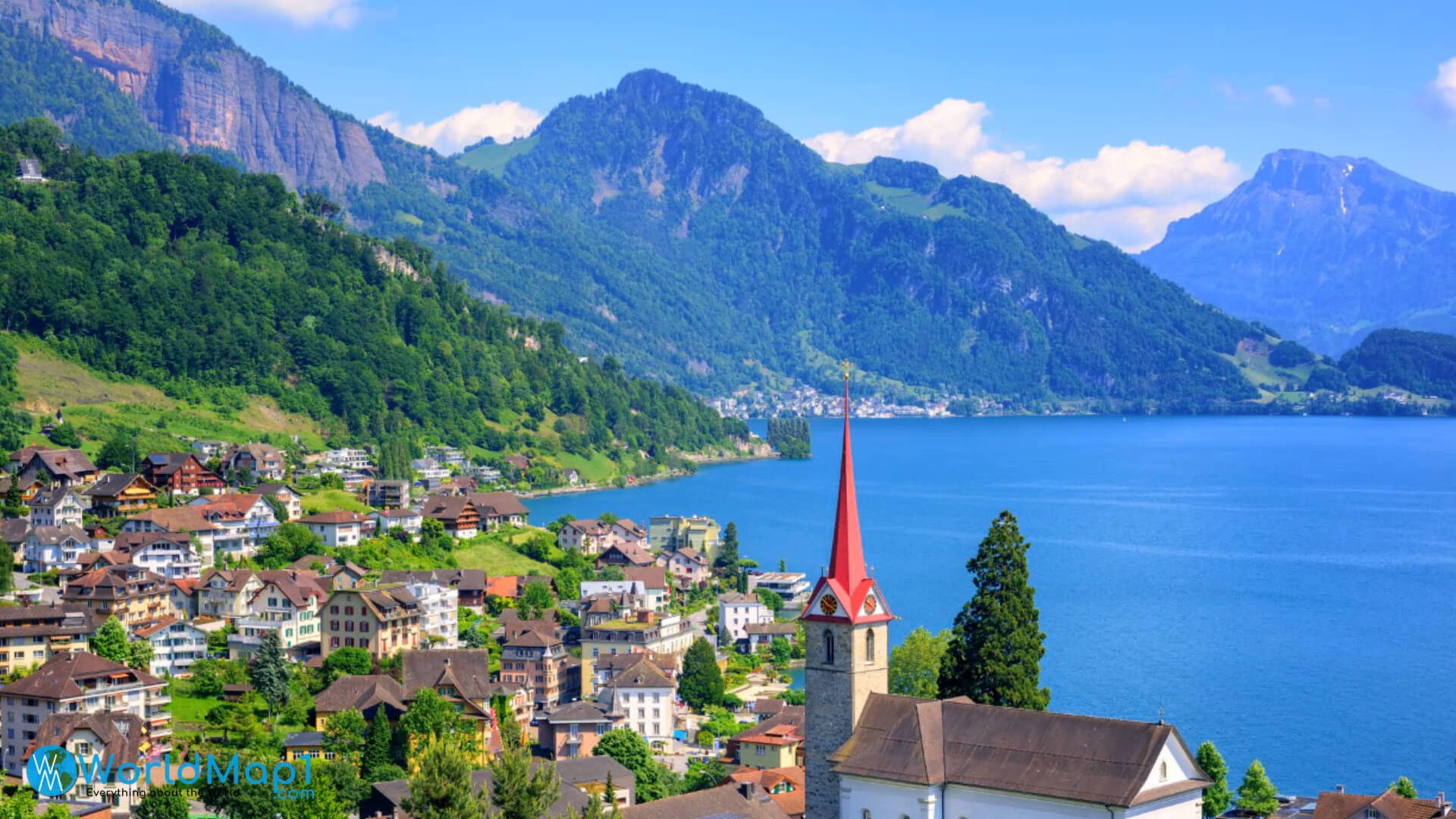
Lucerne has a rich history going back to at least 600 CE, when a fortress was built on Mount Pilatus. In 1218, Lucerne became an independent city-state surrounded by fortified walls. During its early years as an independent state, Lucerne saw many conflicts with other Swiss cities; however, it was able to hold its own thanks to the local support it received from numerous religious orders who had established themselves there over time (including several monasteries).
Canton
The canton of Lucerne is located in central Switzerland. It is one of the cantons established by Napoleon in 1803. With an area of 1,566 km², it is the ninth largest canton in Switzerland and has a population of about 175,000 (as of 2015). The capital city is Lucerne, with other major towns being Lugano and Goldau.
The canton contains only two municipalities: Lucerne (capital) with 95% and Menzingen with 5%.
Major Area
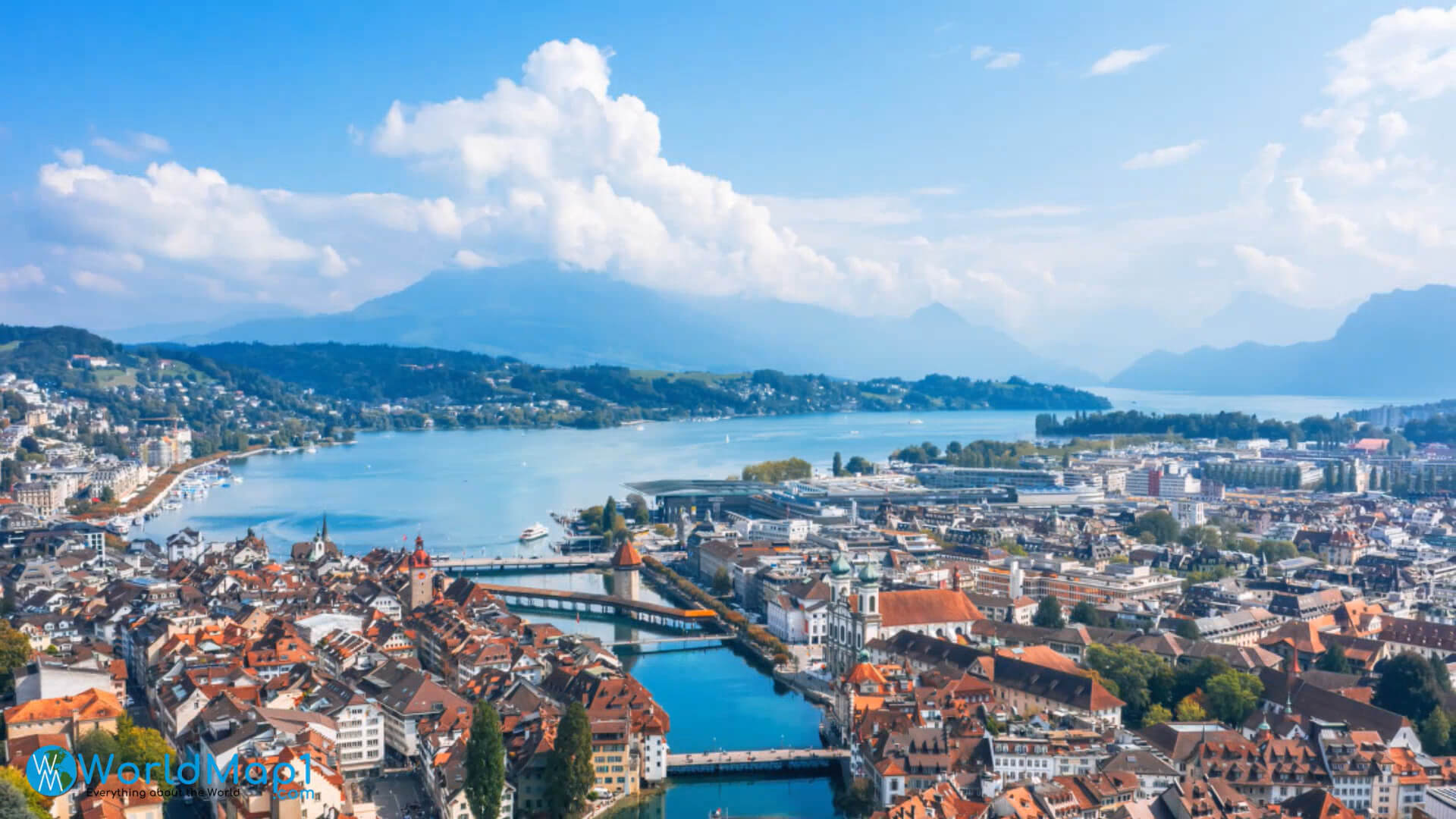
Lucerne is a city that has a rich history. It was founded in the Middle Ages and has been an important trading center since then. The city is home to several museums, including the Swiss National Museum and the Kunstmuseum Luzern, which houses works by famous artists who lived in or visited Lucerne throughout its history such as Pablo Picasso and Vincent van Gogh. These museums offer free entry from April through October.
Demographics
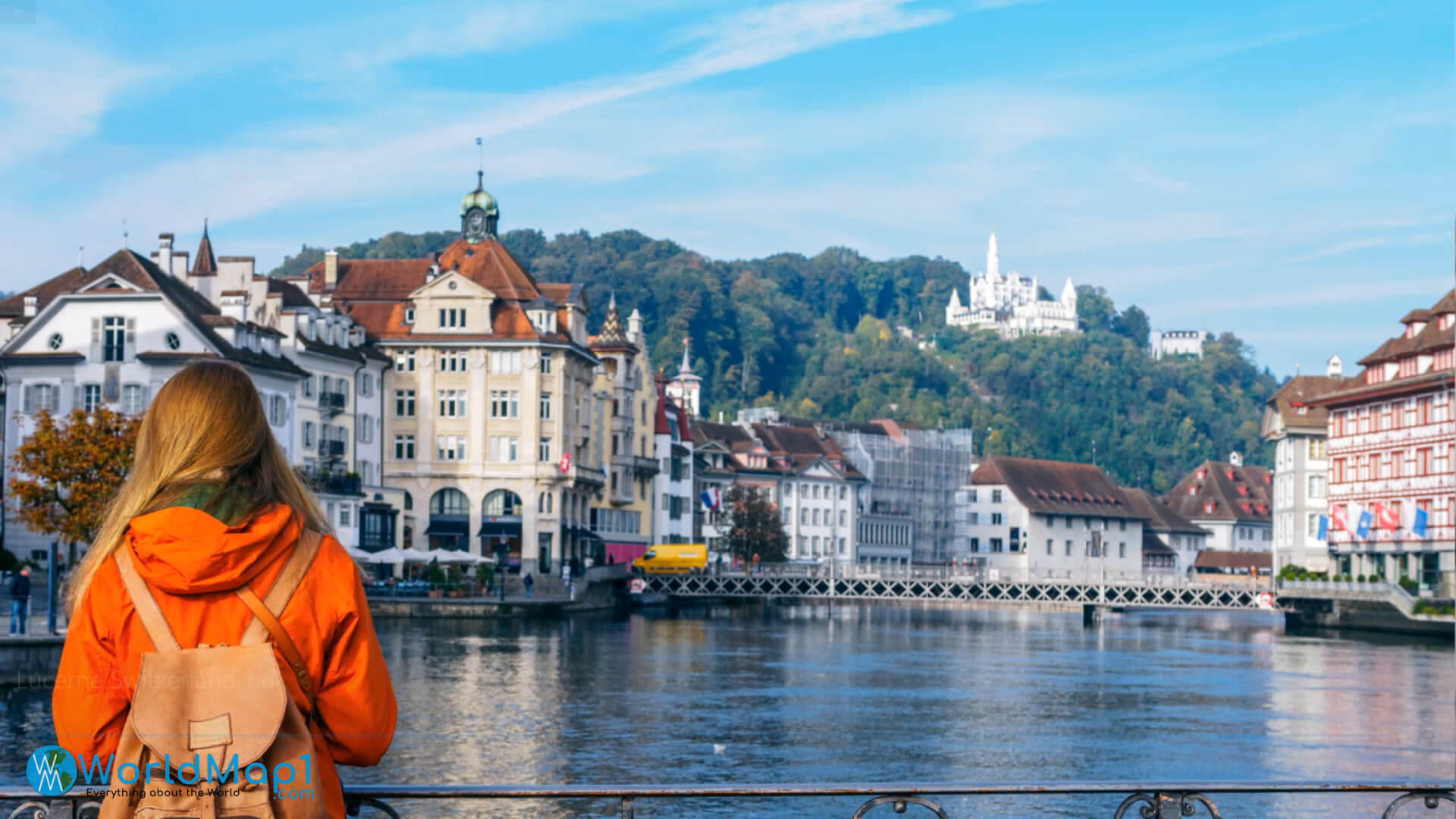
Lucerne's population is approximately 81,391 people (2018 Census).
The majority of residents are Swiss, with a small percentage of foreign nationals. The official languages in Lucerne are German and French.
Most residents practice Christianity as their religion, though some are Muslim or Jewish as well. The average age for women is 46 years old; for men it's 44 years old. The average household income is €991 per month (US$1,126).
Religion
Lucerne is the most religiously diverse city in Switzerland. It has a large Lutheran population, but it also has a large Catholic one, and there are many Muslims living in Lucerne as well.
This religious diversity is reflected in the different festivals held by each group: Lutherans celebrate Easter and Christmas; Catholics celebrate Easter and Assumption Day; Muslims celebrate Eid al-Fitr (the end of Ramadan) and Eid al-Adha (a celebration that takes place over three days).
Languages
The official language of Lucerne is German, although it sounds a bit different to that spoken in Germany because the Swiss dialects are quite different from the standard German used in other parts of Europe. However, most people speak Swiss German too. In addition to these languages, Italian and French can be heard on occasion as well as Romansh which is also spoken by some in the area. English is widely understood but rarely spoken outside tourist areas, so if you're coming from abroad make sure you know how to communicate with your hosts!
History
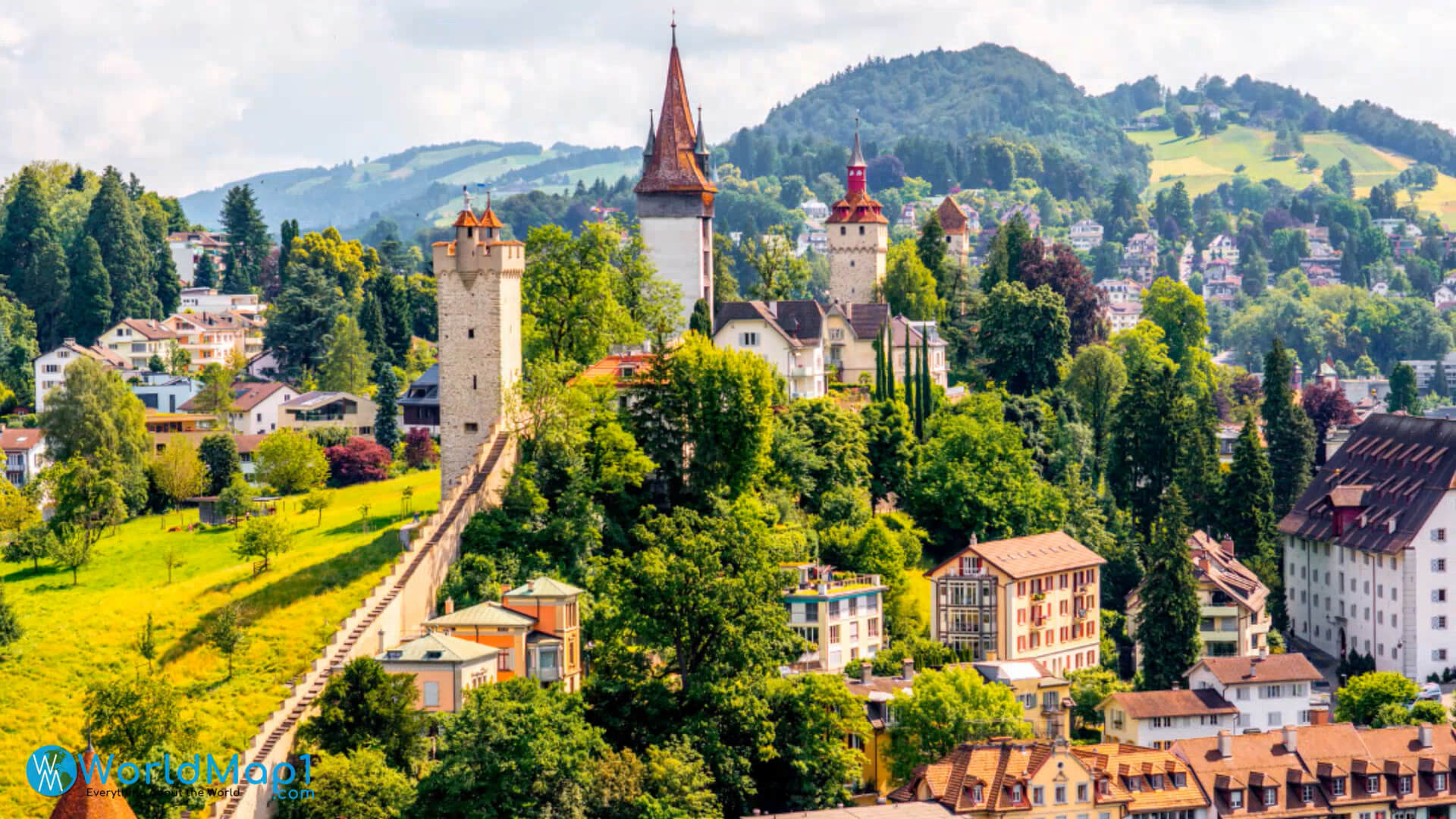
The canton of Lucerne, which is located in the Central Alps region of Switzerland, has a history going back at least 3,000 years. The city of Lucerne itself was first mentioned in 1218 AD and became an important trading center for many centuries. As a result, it grew into a major financial hub and cultural center for both Switzerland and Europe. The city has been occupied by various foreign forces over its long history (including France from 1798-1803), but it was never completely conquered or destroyed due to its geography: hilly terrain with steep valleys that make it difficult to attack from land approaches.
The region around Lucerne was settled by Celtic tribes prior to the Roman Empire's expansion into what we know today as Switzerland in 15 BC; this occupation lasted until AD 940 when Charlemagne established the Duchy of Swabia here during his reign over what we now call Germany (or Franconia). During this period there were two separate towns: one near Schwyz called "Loretto" (which means "lovely place") and another settlement closer towards Zurich called "Luzerna." These towns eventually merged into one large village in 1352 before being incorporated as part of Schwyz canton seven years later.
Politics
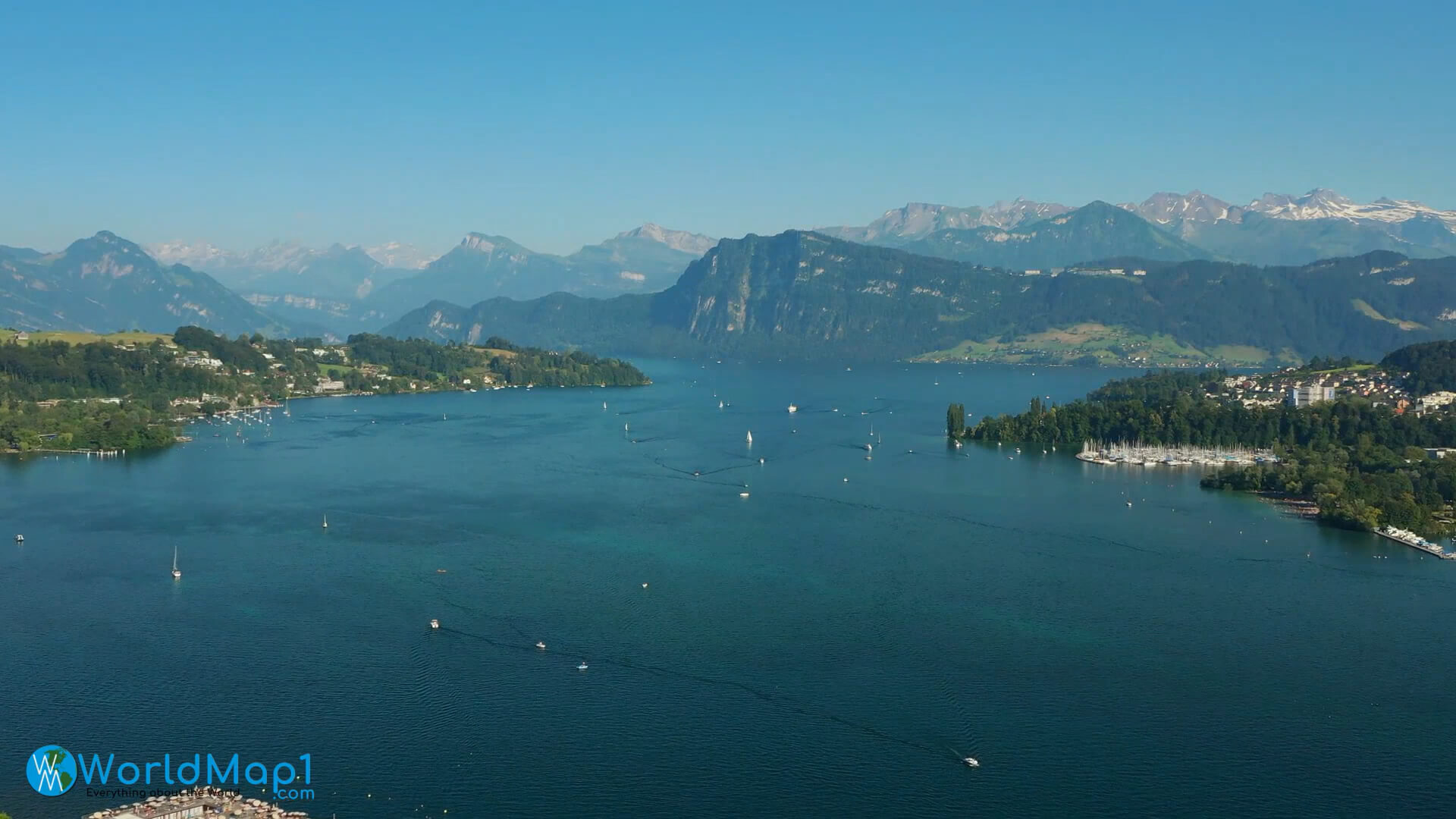
Lucerne is the capital of the Canton of Lucerne and seat of the Swiss Federal Supreme Court. It's also one of Switzerland's most important cities, with a population of around 80,000 people. The city was originally founded in 1191 by King Albert I as a trade center on Lake Lucerne, which is why it was given its name: "Lucerne" means "lightning," since the lake is home to many thunderstorms during summertime.
The city has played an important role throughout its history—it was once home to several dukes who ruled over different parts of Switzerland; it was also where papal legates met with Emperor Frederick Barbarossa in 1178 for peace talks after fighting between pope and emperor had gone on for years; and in 1848, it became capital city for both canton (state) governments after civil unrest rocked Zürich.
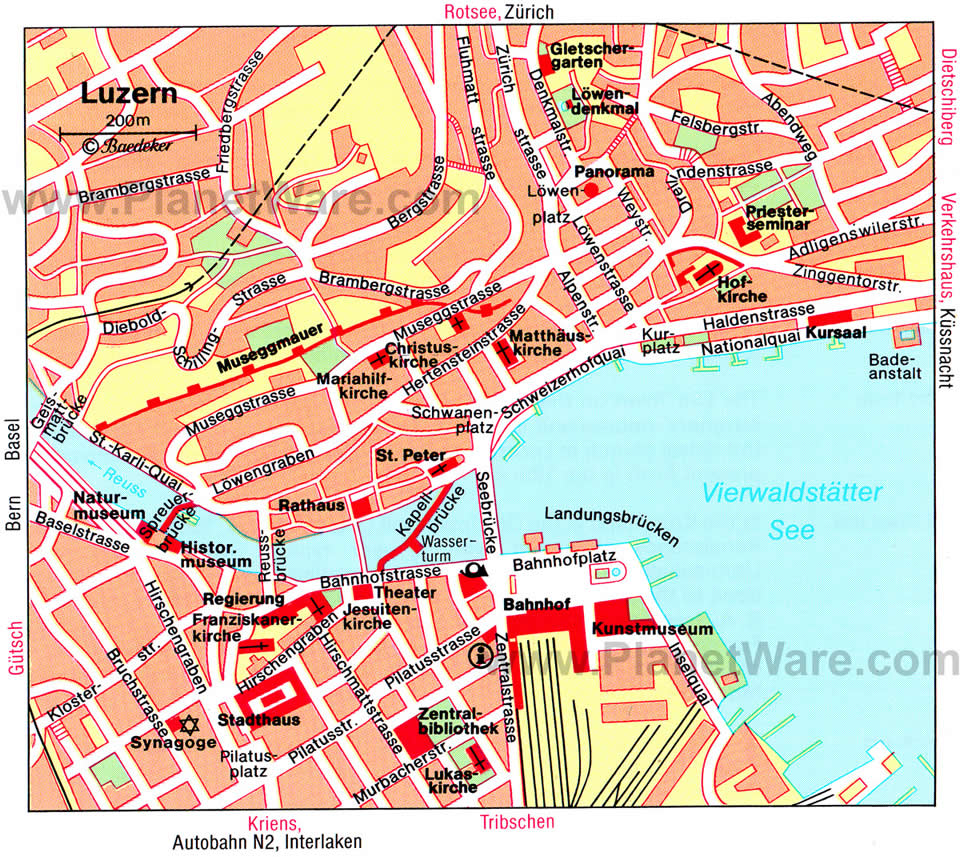
Lucerne is located in central Switzerland and is the capital of the Canton of Lucerne. It lies at the northern tip of Lake Lucerne, which stretches from Lake Zurich to Lake Walenstadt in Central Switzerland.
Lucerne's location and physical setting are unique among Swiss cities. The city is surrounded by mountains and lakes, with Mount Pilatus (2,132 meters or 7,011 feet) dominating its horizon due north; it lies on a plain that gradually rises towards the Alps but whose altitude does not exceed about 1,000 feet above sea level except near Mount Pilatus itself.
The climate is temperate with four distinct seasons: warm summers and cold winters with snowfalls being common between October and April; however due to its position at an elevation below 2200 meters above sea level (7925 ft), temperatures drop significantly during night time when compared to other cities at similar altitudes such as Chamonix (France). Because of this reason some people refer to it as "the city without winter" since they rarely experience temperatures below zero degrees Celsius during cold spells while other regions nearby may see temperatures falling down towards -20°C sometimes which can be quite dangerous if precautions aren't taken accordingly!
Climate
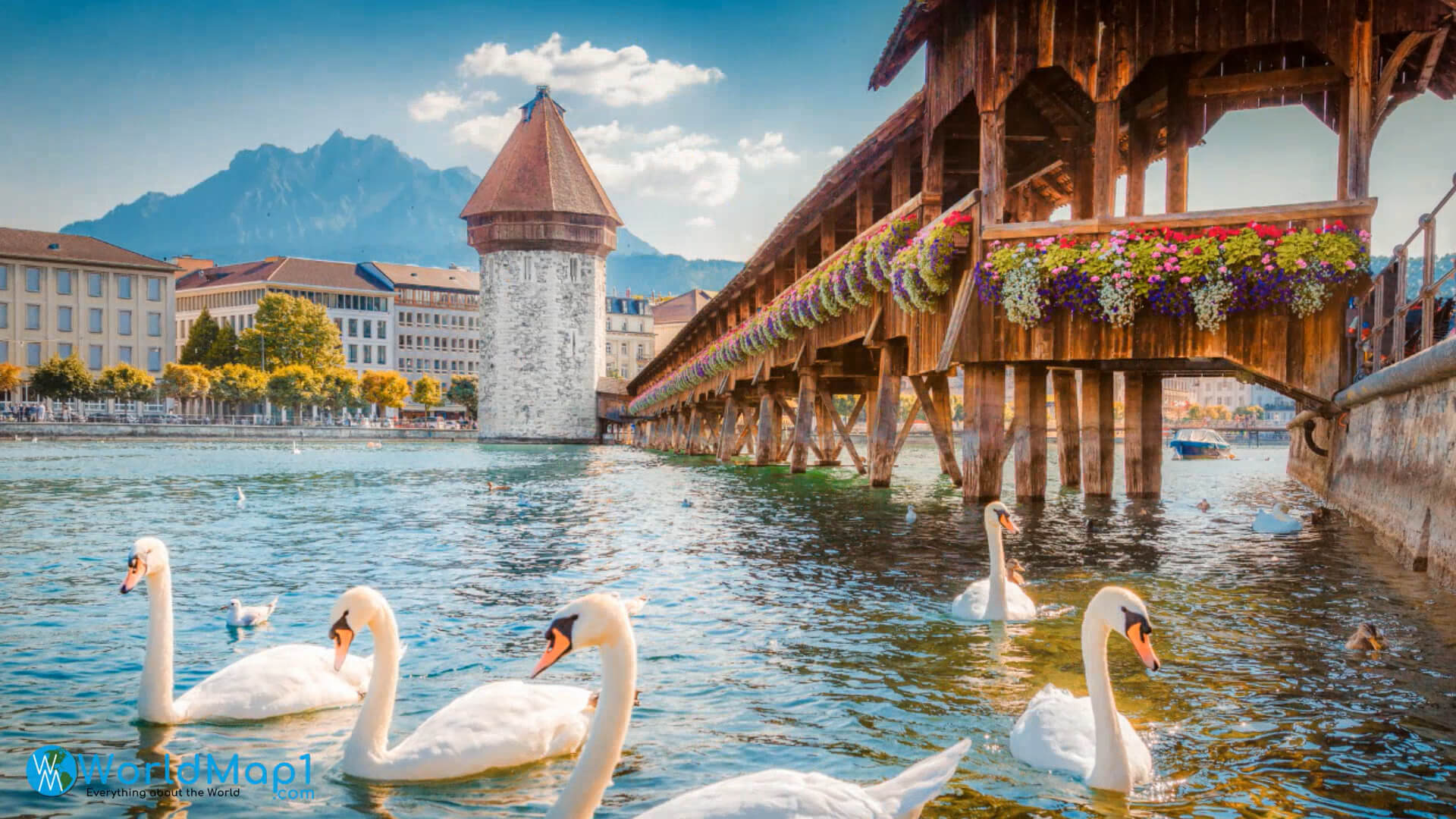
The climate in Lucerne is moderate. The temperatures are generally between 50 and 60 degrees Fahrenheit (10 to 16 degrees Celsius) in July and August. In January, there can be snowfall and temperatures as low as 10 degrees Fahrenheit (-12 degrees Celsius).
Average rainfall is about 45 inches per year, with an average of 6 days a month having measurable precipitation. The city's average humidity level is about 70%.
Economy
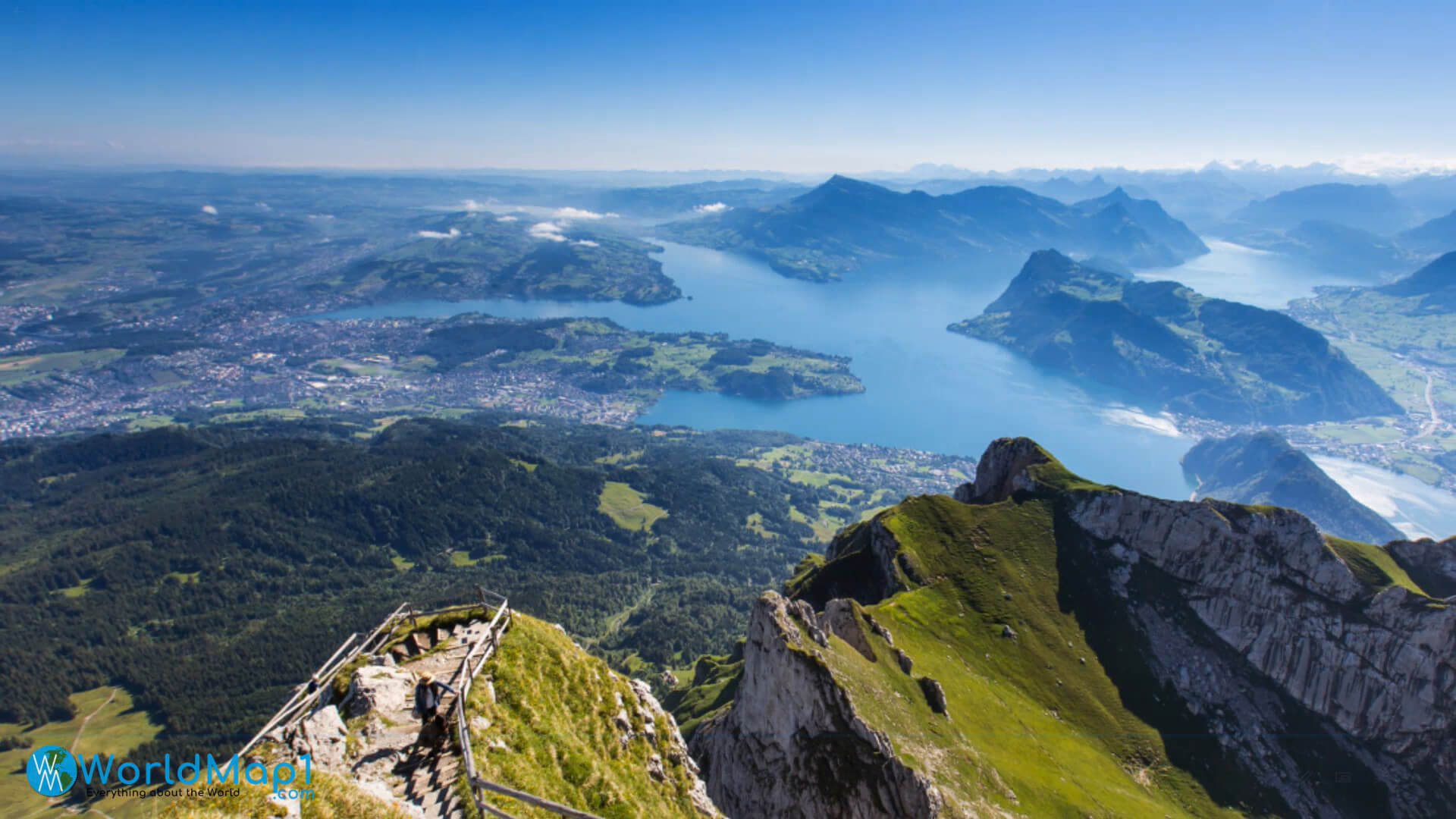
Lucerne is a major tourist destination, with a large number of hotels and restaurants. The city has a strong service sector and is home to a number of financial institutions.
Lucerne has an unemployment rate of 4.8%.
Education Universities and Colleges
The University of Lucerne is the oldest university in Switzerland. It was founded in 1968, and today it has a strong international reputation. The university offers bachelor's and master's degrees in various fields of study, including business administration, health sciences, law and several other subjects.
The University of Lucerne is also home to a number of research institutes that support students with their academic studies or offer them practical training opportunities during internships or placement periods abroad at one of the many partner institutions around the world:
Lucerne is a city that has a rich history.
If you're looking for a city that has a rich history, Lucerne is the place to be. This city has been home to many important people and events throughout its long past. The first human settlements were in this area as far back as 4500 BC, and then it became part of the Roman Empire under Julius Caesar before becoming a republic in what is now Switzerland. At this time there were about 20,000 inhabitants across five different cantons (which are like counties).
In 1405 Lucerne became part of the Swiss Confederation and was able to help end wars between various cities and states by working together with other communities during difficult times—which resulted in an increased population size due to immigration from surrounding areas who wanted protection from invaders coming over from France or Germany! This also meant that there were many new jobs available for those who moved here; for instance: carpentry work installing wooden houses inside stonemasons' shops building stone walls around farms outside town boundaries where farmers lived.
Culture
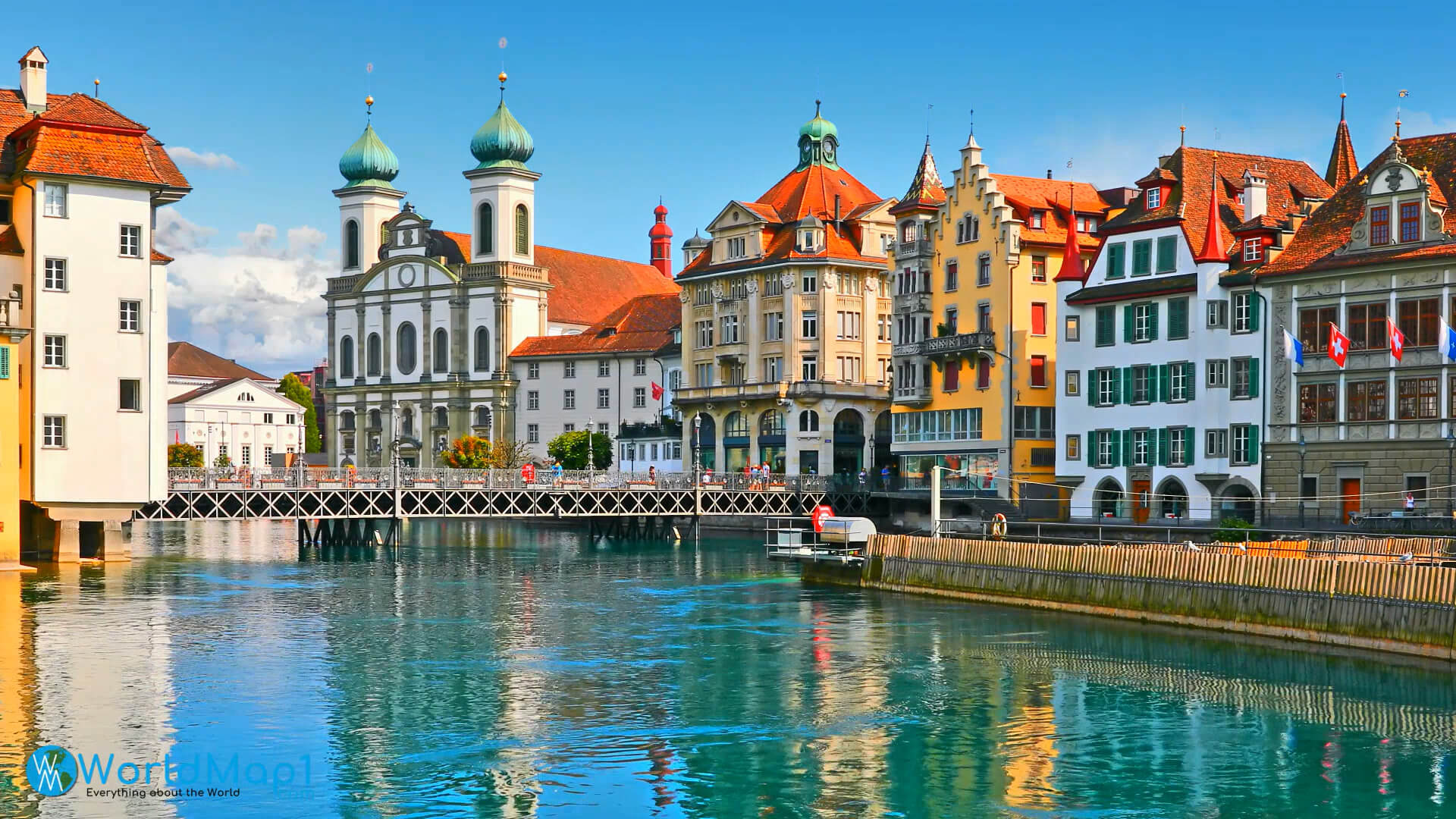
Lucerne's cultural life is characterized by its rich heritage, which spans from the Middle Ages to the present day. The city hosts numerous museums and art collections, concerts and other cultural events of international significance – all set against a backdrop of magnificent scenery.
Lucerne has an impressive musical tradition that goes back to medieval times. The earliest evidence of this comes from a document dated 1351 which mentions an organist called "Bertoldus de Lucerna". This was later confirmed by documents dating back to 1437/38 showing that there was a school for musicians in Lucerne at this time: "The School for Music at Lucerne". However, it wasn't until 1609 when another reference was made: "The first record of instrumental music coming out of Switzerland."
Sport
Lucerne is also the home to many sporting events. The Ice Hockey World Championships were held here in 1994 and 2008, with another tournament planned for 2022. In addition to this event, Lucerne has also hosted the Swiss Open golf championships since 2012 and will continue to do so through 2021.
In addition to hosting international tournaments, Lucerne also hosts its own annual sporting events and championships: The World Snow Polo Championships take place every October at the 7,000-capacity Arena Luzern; while the World Club Challenge (featuring teams from England's Rugby Football League Championship against teams from Australia's National Rugby League Premiership) takes place every February at Hallenstadion Wankdorf Stadium.
Museum
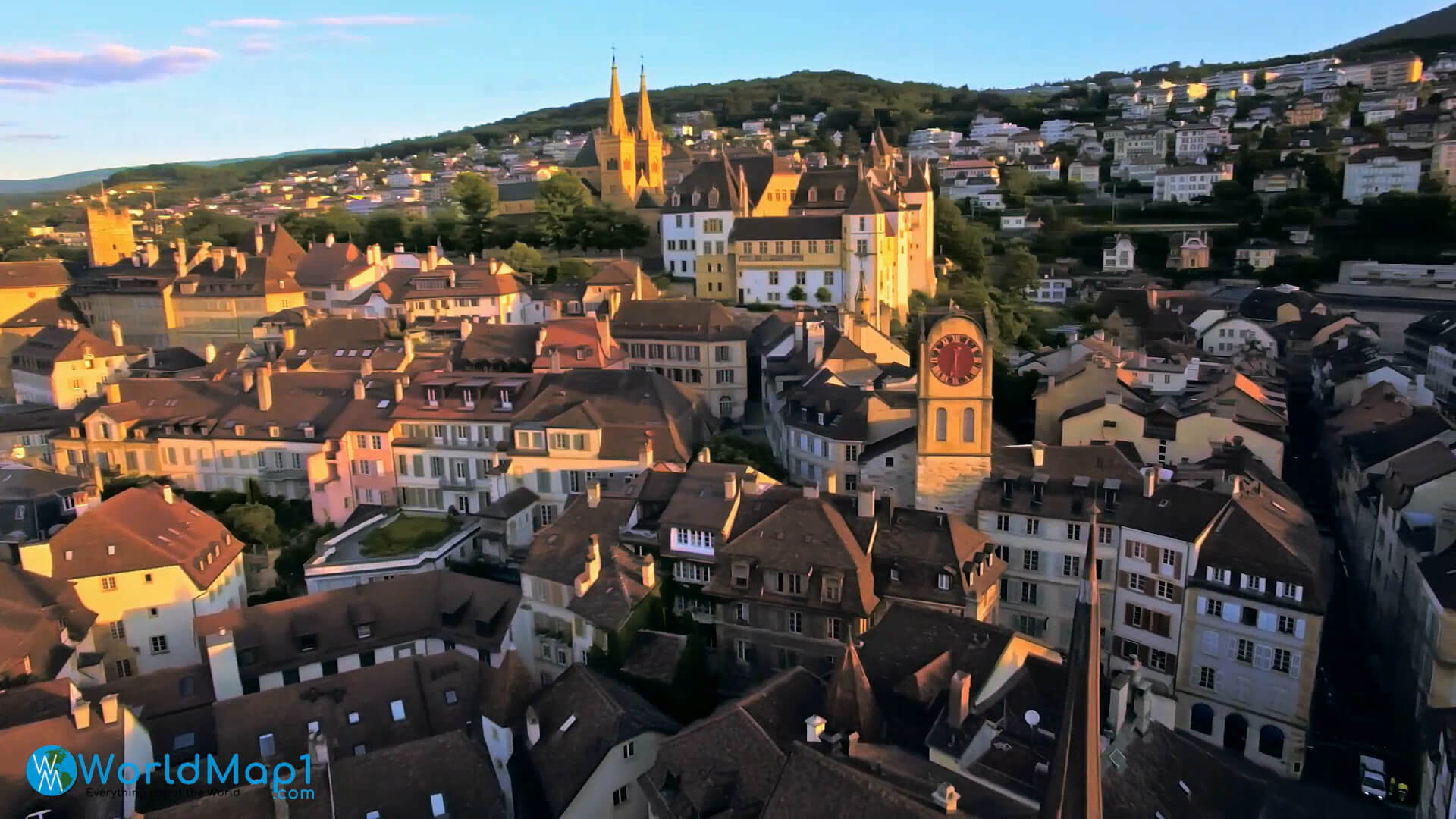
Oops! Click Regenerate Content below to try generating this section again.
Media
The city has a newspaper, a radio station and a television station. The Luzerner Zeitung is the main daily newspaper in Lucerne and it's published six days a week. Radio Luzern is the second most listened to radio station in the Canton of Lucerne, with various local shows that are broadcast in German as well as some English language content. Tele Lueg is the city's public-owned television channel, broadcasting news programmes and sports events as well as entertainment shows such as soap operas or comedies.
Events
Lucerne hosts a number of festivals throughout the year, including the Lucerne Festival and Jazz Festival, the Blues Festival and Marathon.
The Culture Summer in Lucerne runs from June to September 2019. It includes 13 events with more than 150 performances on offer over 30 days in different venues across town. The festival offers a diverse mix of music genres such as classical music, jazz and pop music along with art exhibitions showcasing local artists.
The Christmas Market is held at Kornhausplatz in November each year - it's one of Europe's largest markets!
Cuisine
If you're looking to dine on a budget, Lucerne may not be the best place to visit. The city has a reputation for being expensive, but it's also very easy to find good food at reasonable prices if you know what to look for.
If fondue isn't your thing and you'd prefer something more sophisticated, don't worry: there are plenty of other options available in Lucerne. If you're not sure where exactly to start looking, try these suggestions:
The Clock Tower Restaurant is located right next door to the Rathaus (town hall) and serves up delicious traditional Swiss cuisine along with incredible views of Lake Lucerne.
For those who want an upscale dining experience without paying Manhattan prices, try Restaurant Weisses Rössli—it's located near Hotel Lido Palace & Spa in central Lucerne and offers fantastic views of both Lake Lucerne and Mount Pilatus as well as excellent service by its professional waitstaff.
Transport
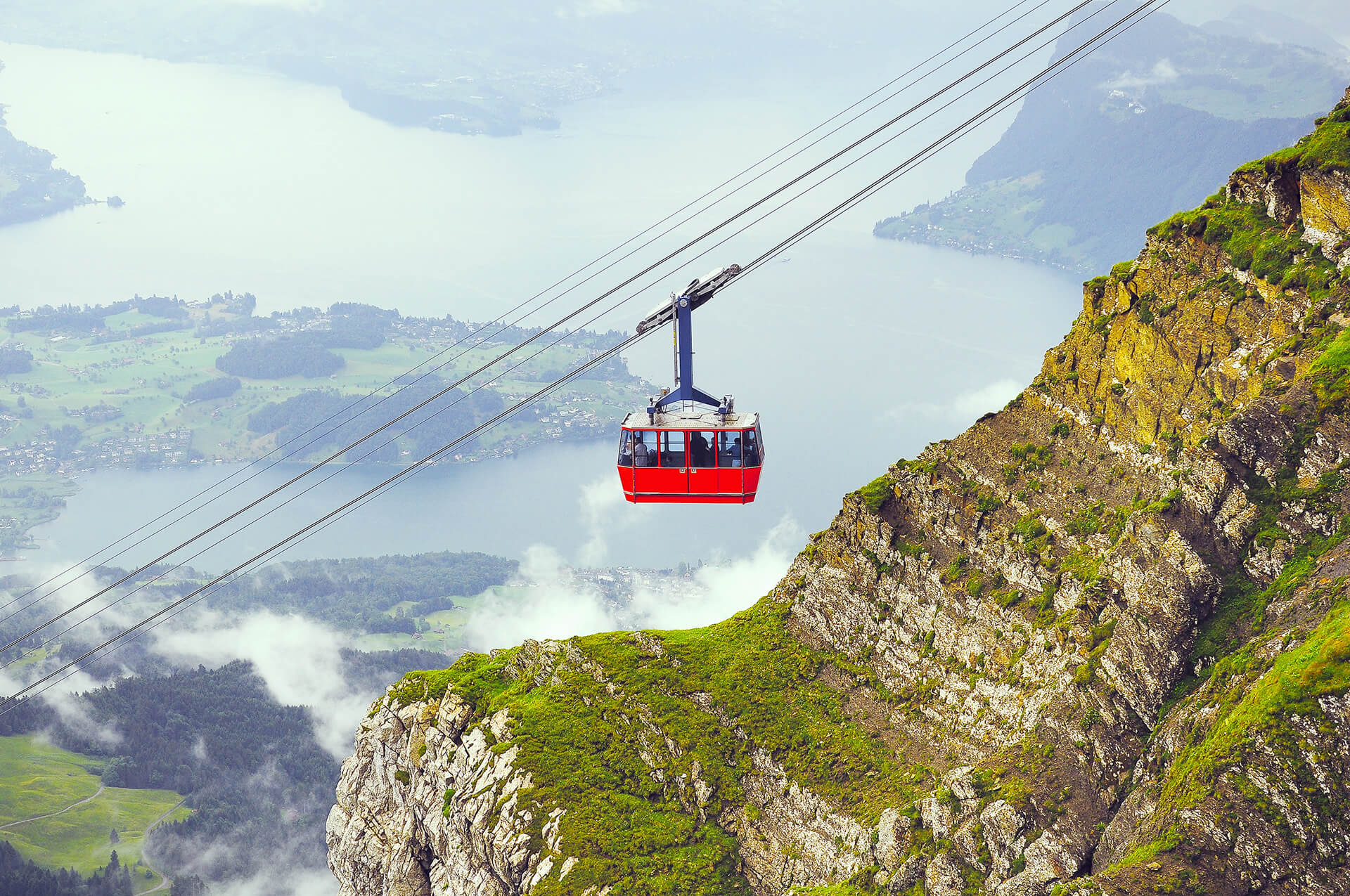
Lucerne's public transport system is efficient and reliable, with a bus service that runs frequently throughout the day. There are also rail links to Zurich, Bern and Interlaken, as well as an airport with regular flights to other major Swiss cities.
Lucerne is a popular destination for cyclists, with dedicated bike paths throughout the city and surrounding area. Renting a bike is easy—there are several rental shops in town or you can opt for an electric bike if you're feeling especially adventurous!
Lucerne is also known as one of Switzerland's best hiking spots—whether it's high alpine peaks or lowland forests that thrill you most, there are plenty of ways to get into nature while visiting this historic town.
Skiers will find excellent ski resorts within reach of Lucerne including Engelberg-Titlis (known for its stunning views), Grindelwald and Murren-Schilthorn (the highest mountain), Stechelberg-Mürren (known for its family friendly atmosphere) and Lauterbrunnen Valley-Stechelberg (which offers opportunities for beginners).
Health
Switzerland is a beautiful country that offers much to its residents, but it's not perfect. To live in Switzerland and enjoy the culture, cuisine and scenery of this wonderful land you will need to be prepared for some health risks. The first thing that new immigrants should do is get their health insurance sorted out as quickly as possible.
Health care in Switzerland can be expensive but it is also high quality and there are plenty of options depending on your situation. The most important thing to remember when choosing your health plan is that you want something which will cover all your needs for life - if you don't then you may find yourself paying more than necessary later on when an unexpected illness strikes or someone close to you falls ill unexpectedly (and unfortunately this happens too).
Make sure that any policy covers not only accident or sickness treatment but also dental care, maternity-related services (if applicable) mental health coverage etcetera; this way nothing is left uncovered!
Energy
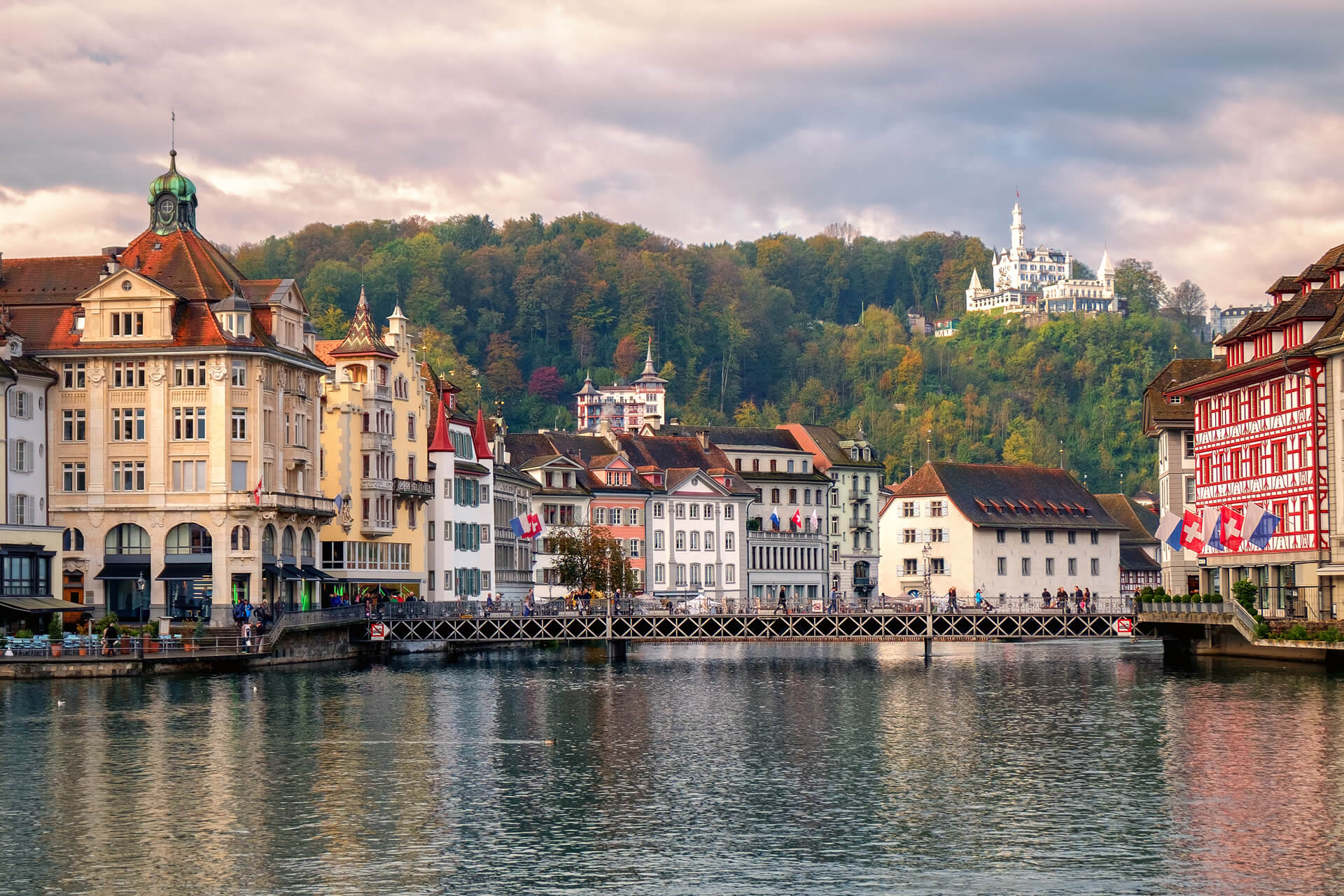
Lucerne is one of the greenest cities in Switzerland, as it has the largest hydroelectric power plant in Switzerland and a number of other renewable energy sources. The city has made great efforts to be environmentally friendly and sustainable, which have been recognized by many institutions including UNESCO. The city's environmental policies have also won international awards.
The clean air, quietness, and beautiful surroundings make Lucerne an ideal destination for tourists looking for a peaceful break from their busy lives.
Notable People
Lucerne is home to many notable people, including:
- Robert Smithson, a famous artist and sculptor who lived in Lucerne from 1972 until his death in 1973. He created many works in the region and became a prominent figure of the local art scene.
- Evan Rachel Wood, an actress who lives in Lucerne with her family. She is known for her roles on "The Wrestler" and "Westworld", among other projects.
- Andy Warhol, an American artist whose work was popular during the 20th century. He was born in Pittsburgh but spent time living abroad in places like Italy and France before moving permanently to New York City where he died at age 58 after being shot by Bernard Goetz (who claimed self-defense). Warhol grew up speaking Slovak but learned English while attending school outside of Pittsburgh; he later moved back there after serving time as an Air Force sergeant during World War II ended because it was cheaper than living elsewhere due to wartime rationing policies that limited money spent on goods such as food supplies; these experiences shaped him throughout life as seen through his artwork which often focused on themes related specifically towards those eras such as consumerism vs capitalism vs communism etc., often using images/objects associated with each era's culture as focus points i.e., Coca Cola bottles etc..
Lucerne is an interesting city. You should visit it! 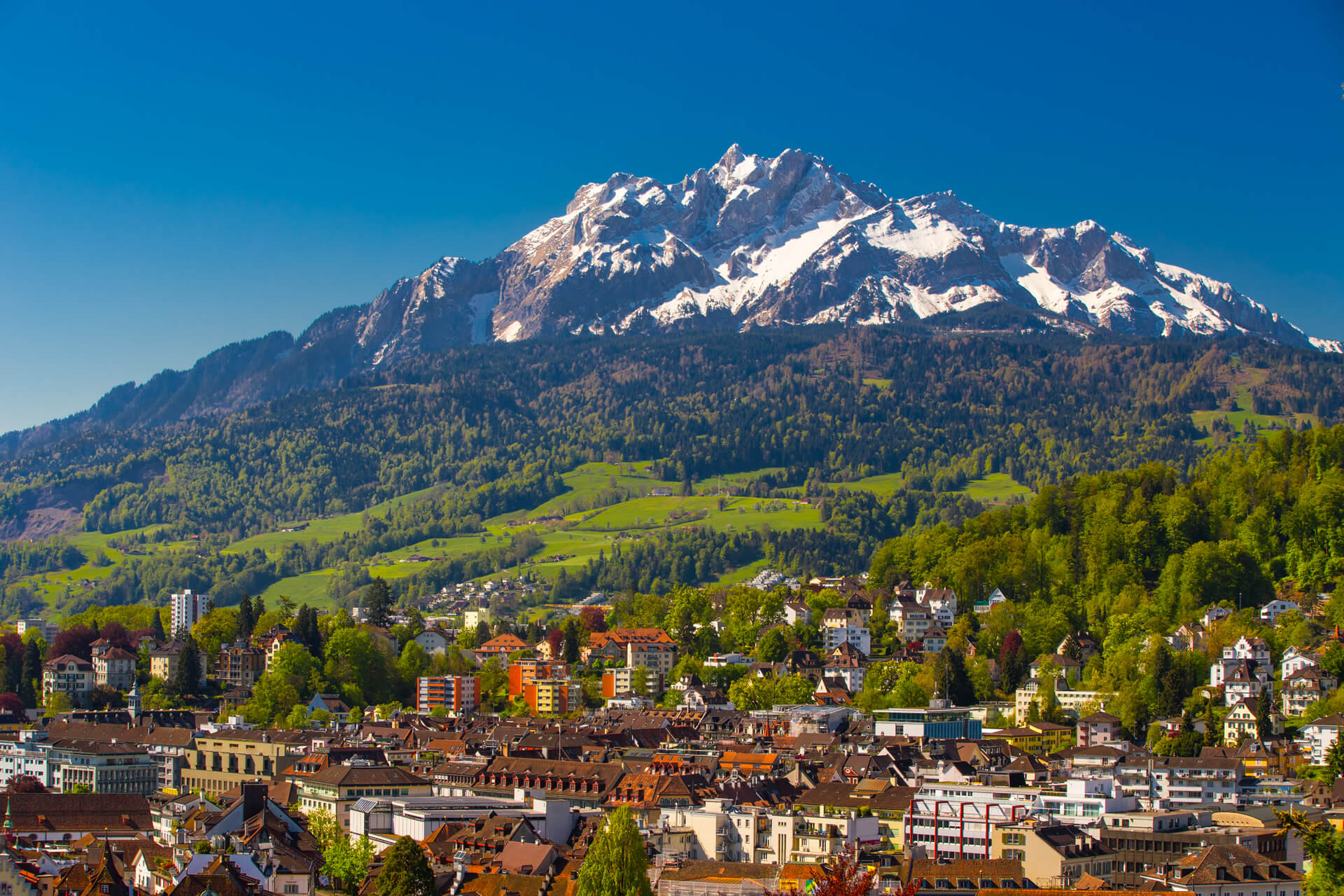
Lucerne is a city in Central Europe. It is located in the heart of the Swiss Alps, and it boasts several attractions that make it an attractive place to visit. These include:
A beautiful old town with cobblestone streets and historic buildings
The famous Chapel Bridge crossing Lake Lucerne, which has been featured in many movies and TV shows
An annual festival celebrating spring called "Lucerne Festival" (May/June)
Like any other tourist destination, Lucerne has its share of dangers—you should practice caution when walking around at night or visiting certain parts of town alone if you're traveling alone. But overall it's safe enough for tourists who don't stray too far off the beaten path (and who stay alert).
Lucerne is a city with a rich history. It started out as a Roman settlement, but it wasn't until the 11th century that Lucerne became an important trading post. Today, Lucerne has become one of the most popular tourist destinations in Switzerland and one of the most beautiful cities in Europe.
These are just a few of the many things that make Lucerne an interesting city. You should plan your next vacation to see all of these amazing sights for yourself!
Please view more Lucerne photos
Cityscape of Lucerne in the Evening Switzerland
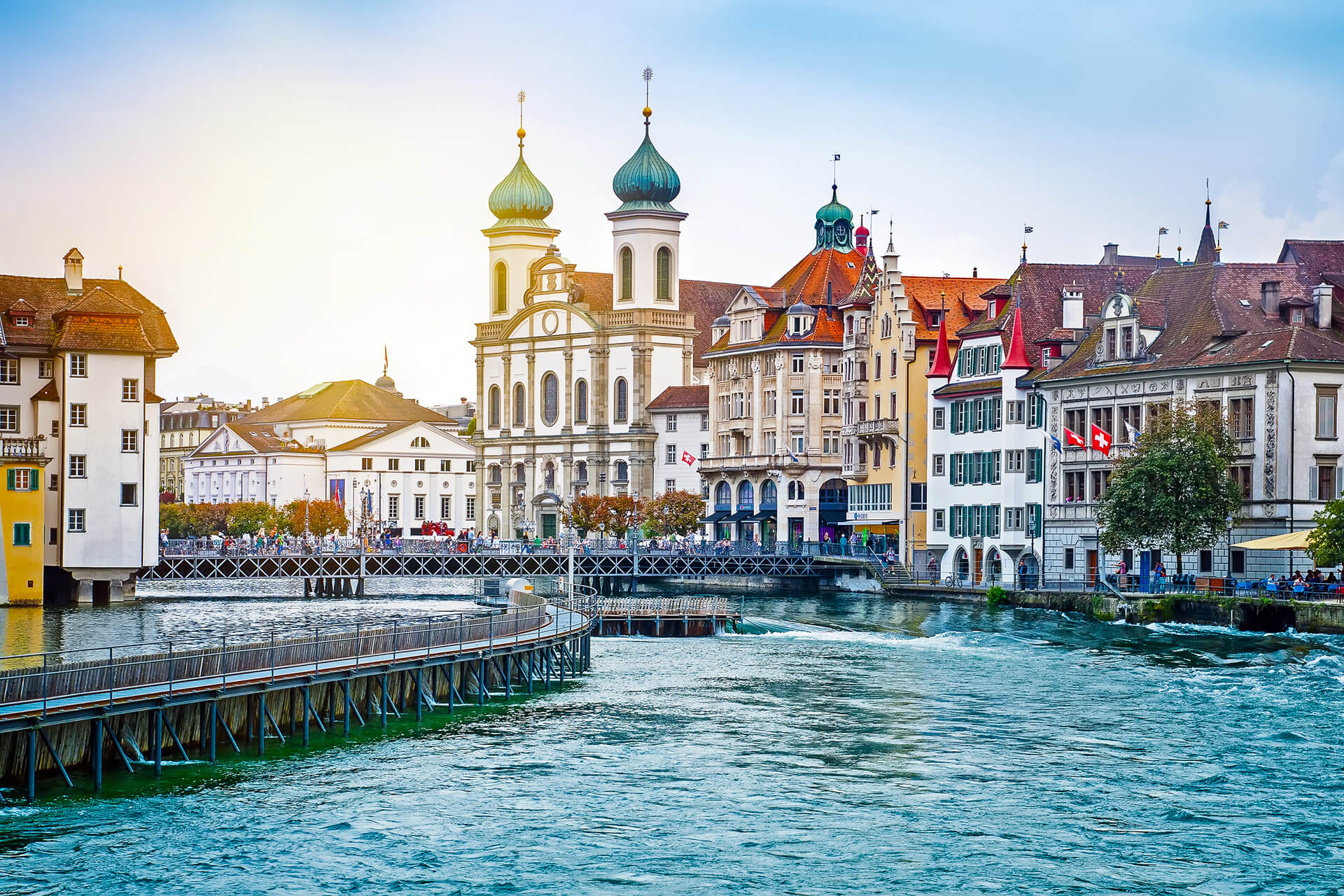
Lake Lucerne in Weggis
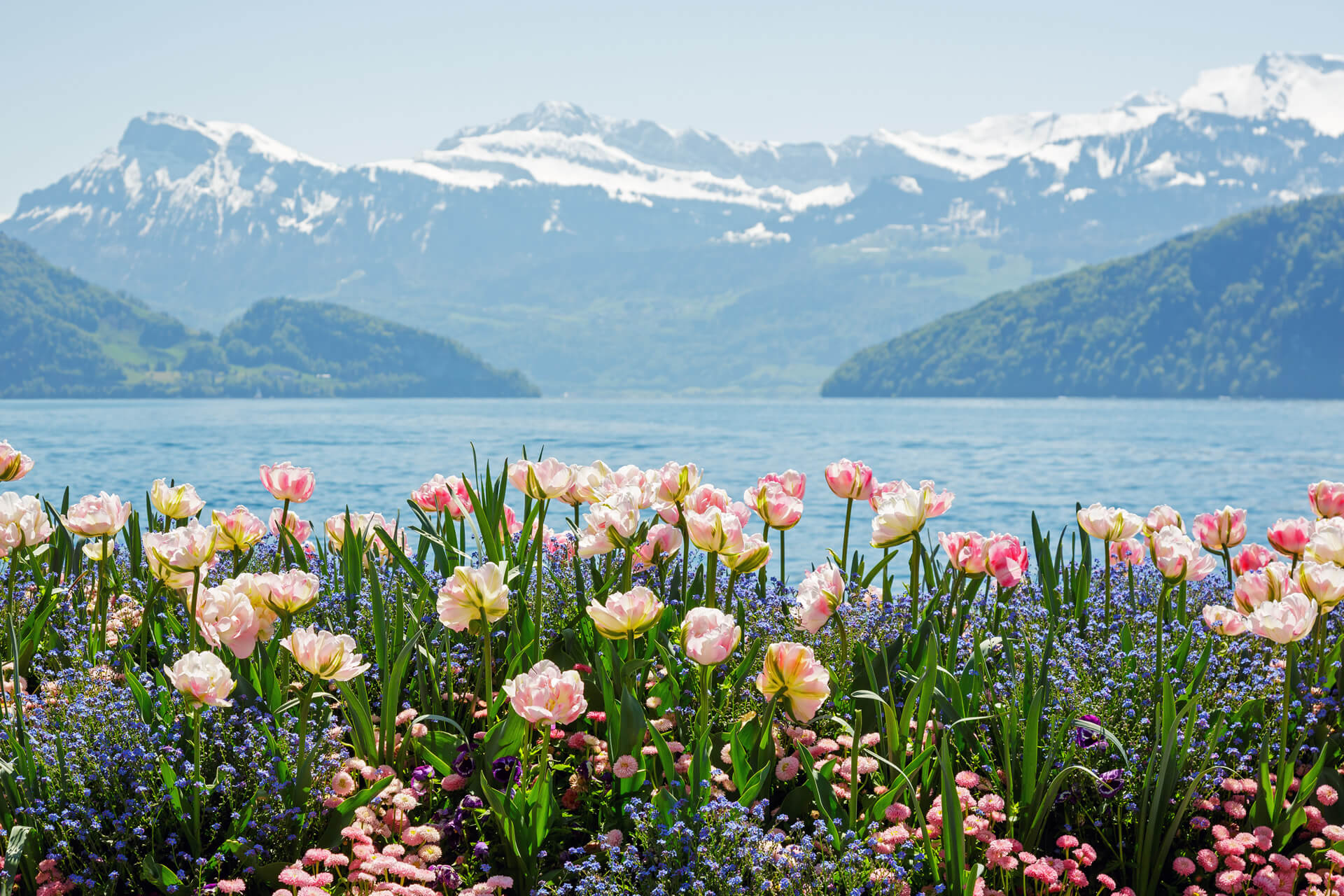
Lake View from Lucerne
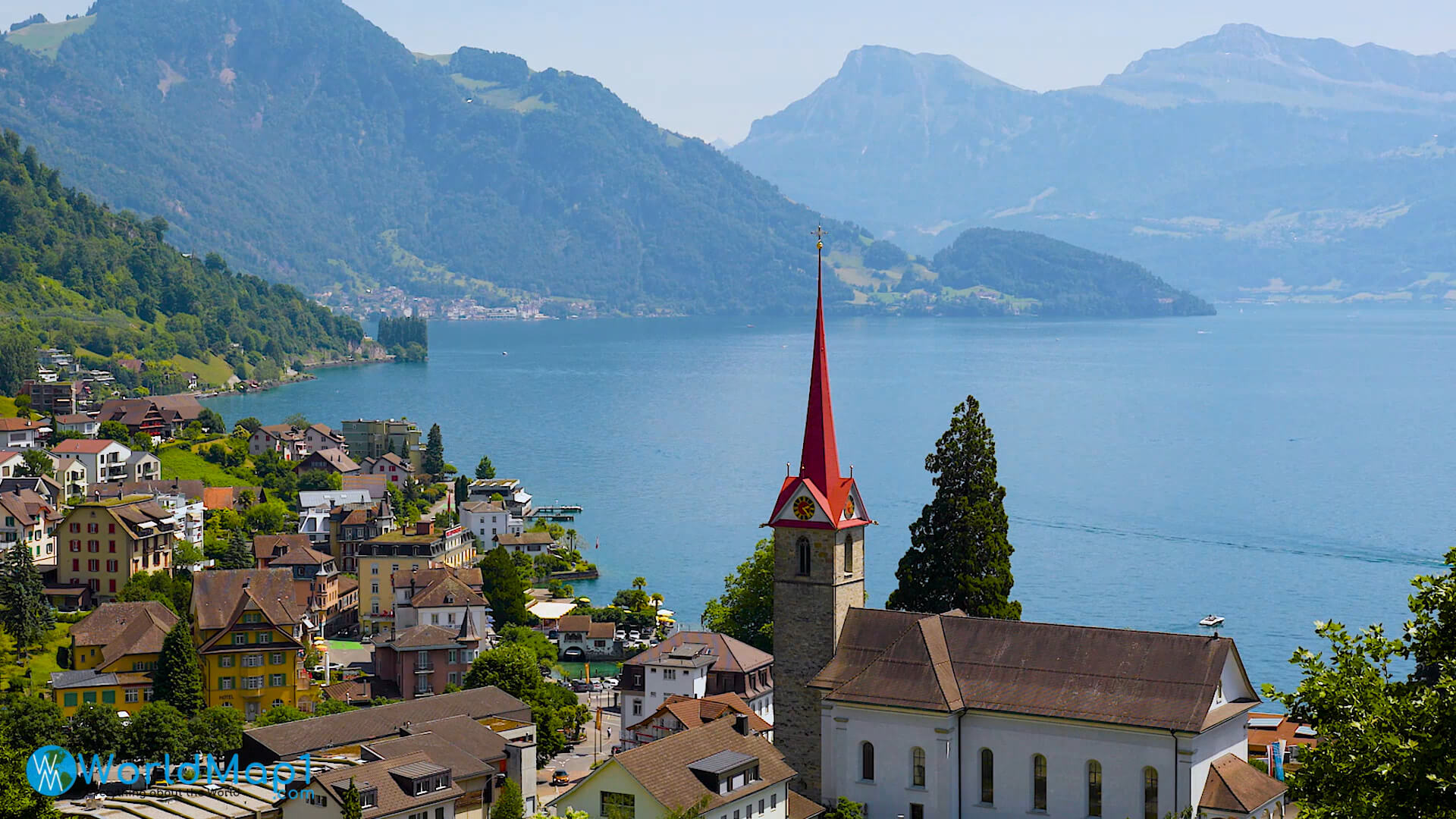
Lucerne Aerial View
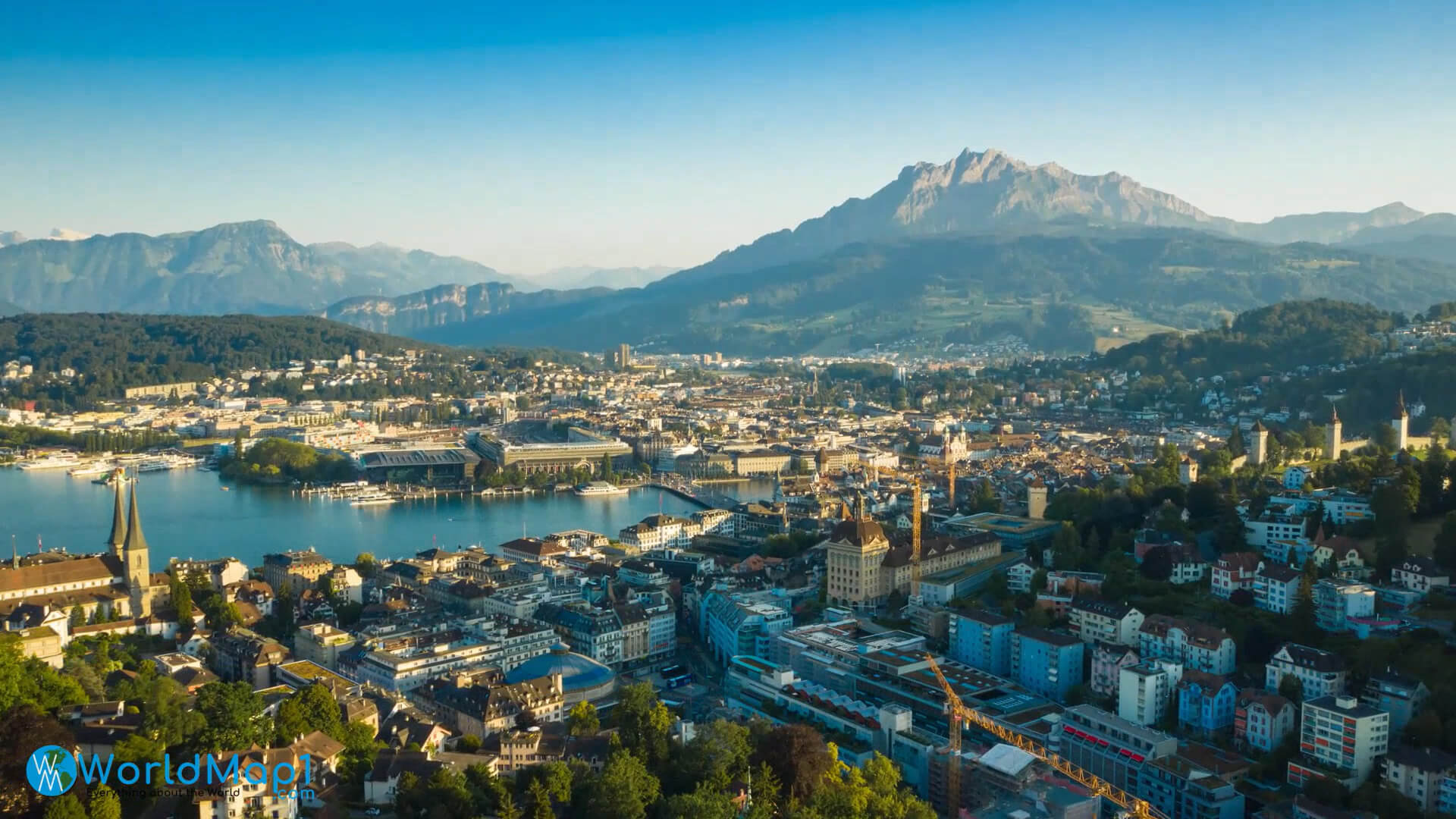
Lucerne City Center
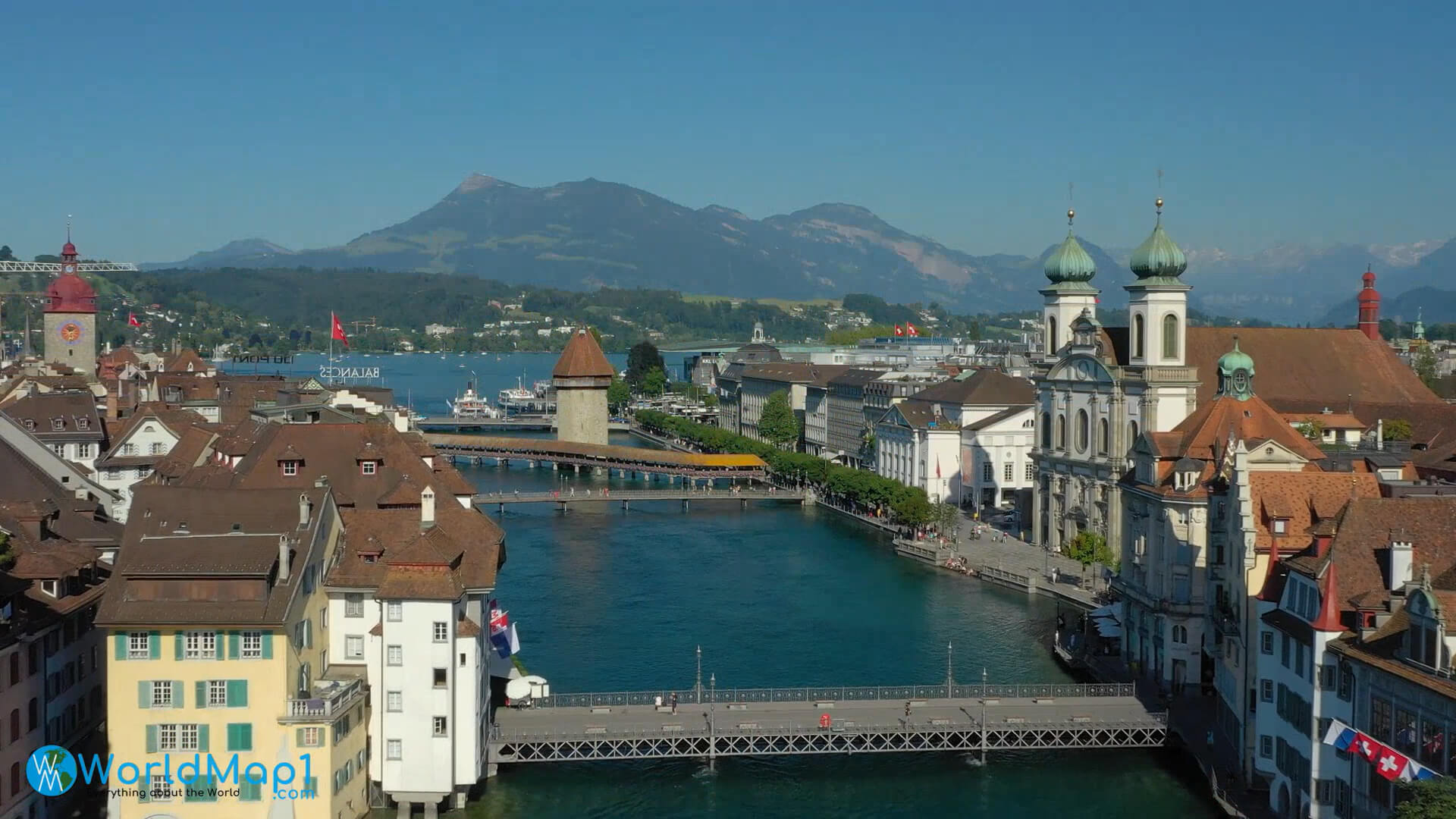
Lucerne Eye Bird View
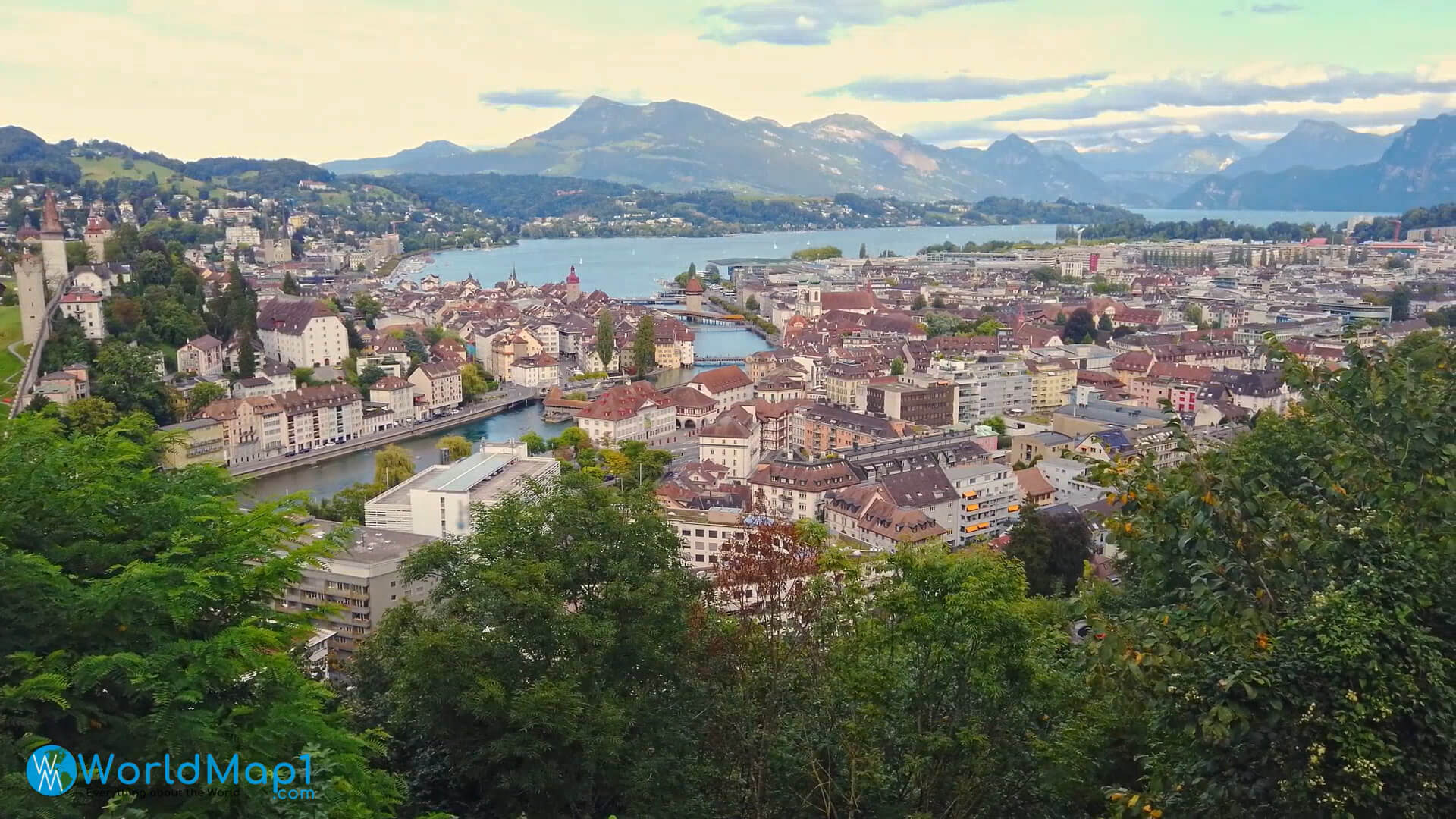
Lucerne in Switzerland
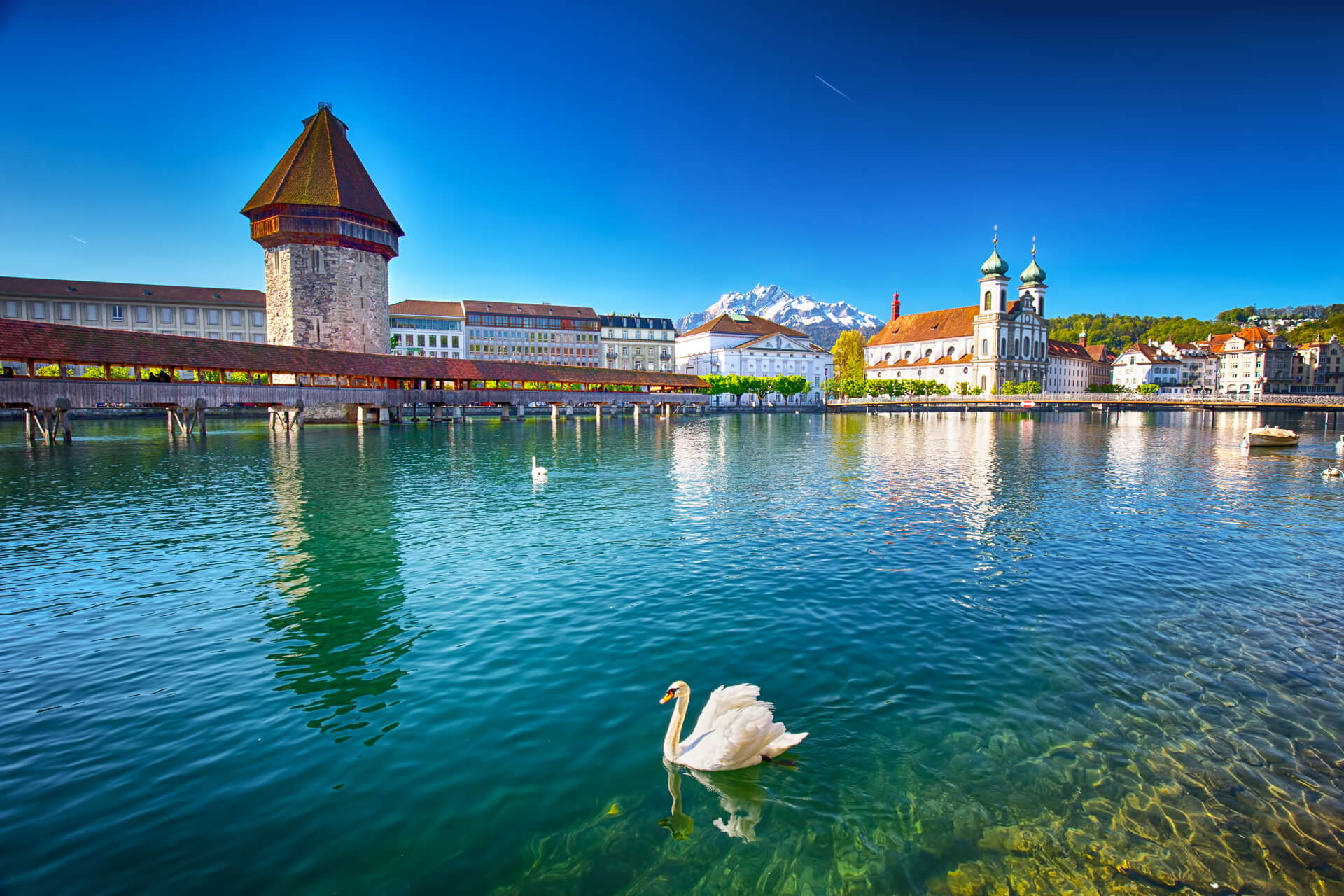
Lucerne Old City
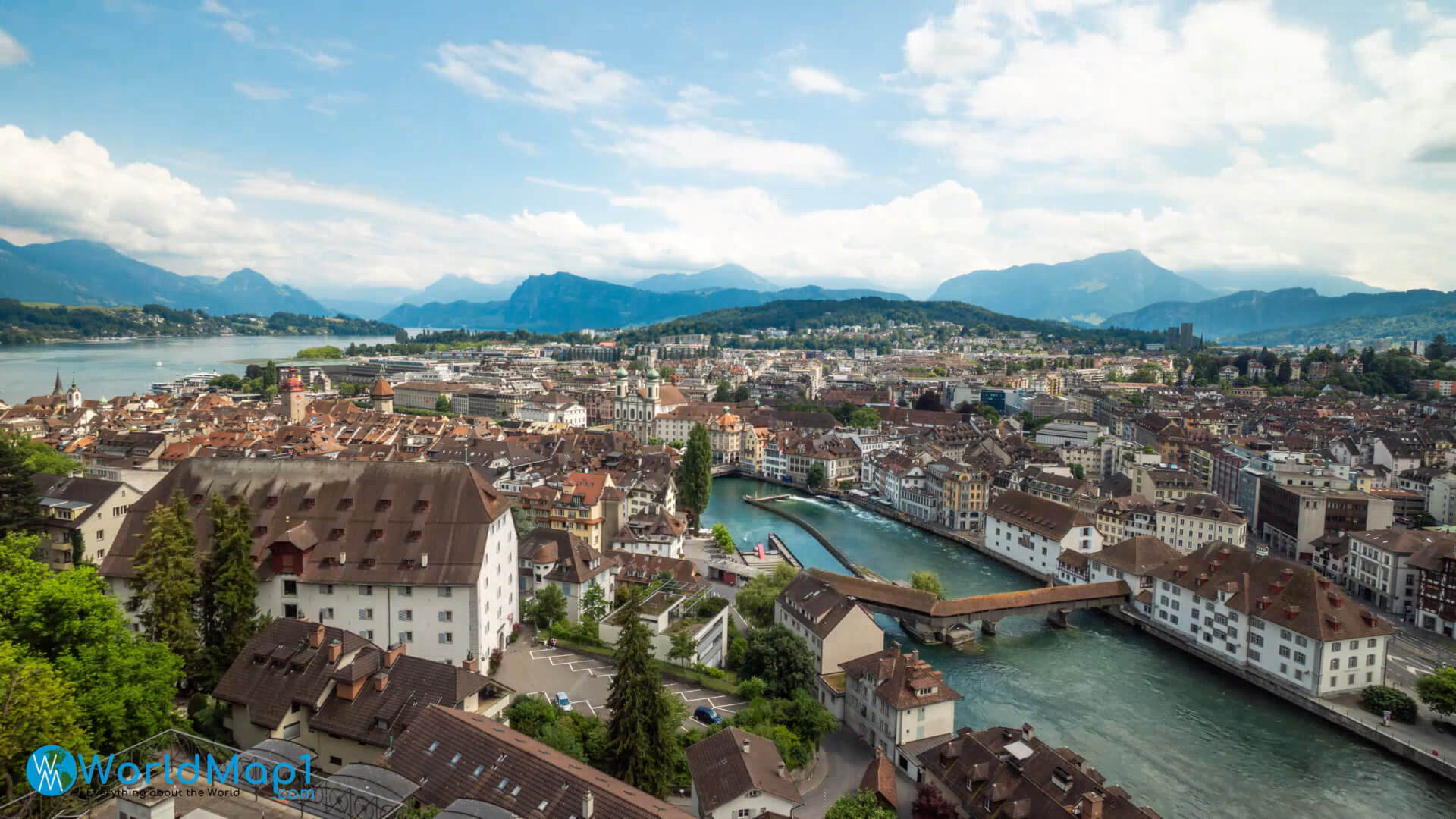
Lucerne Switzerland
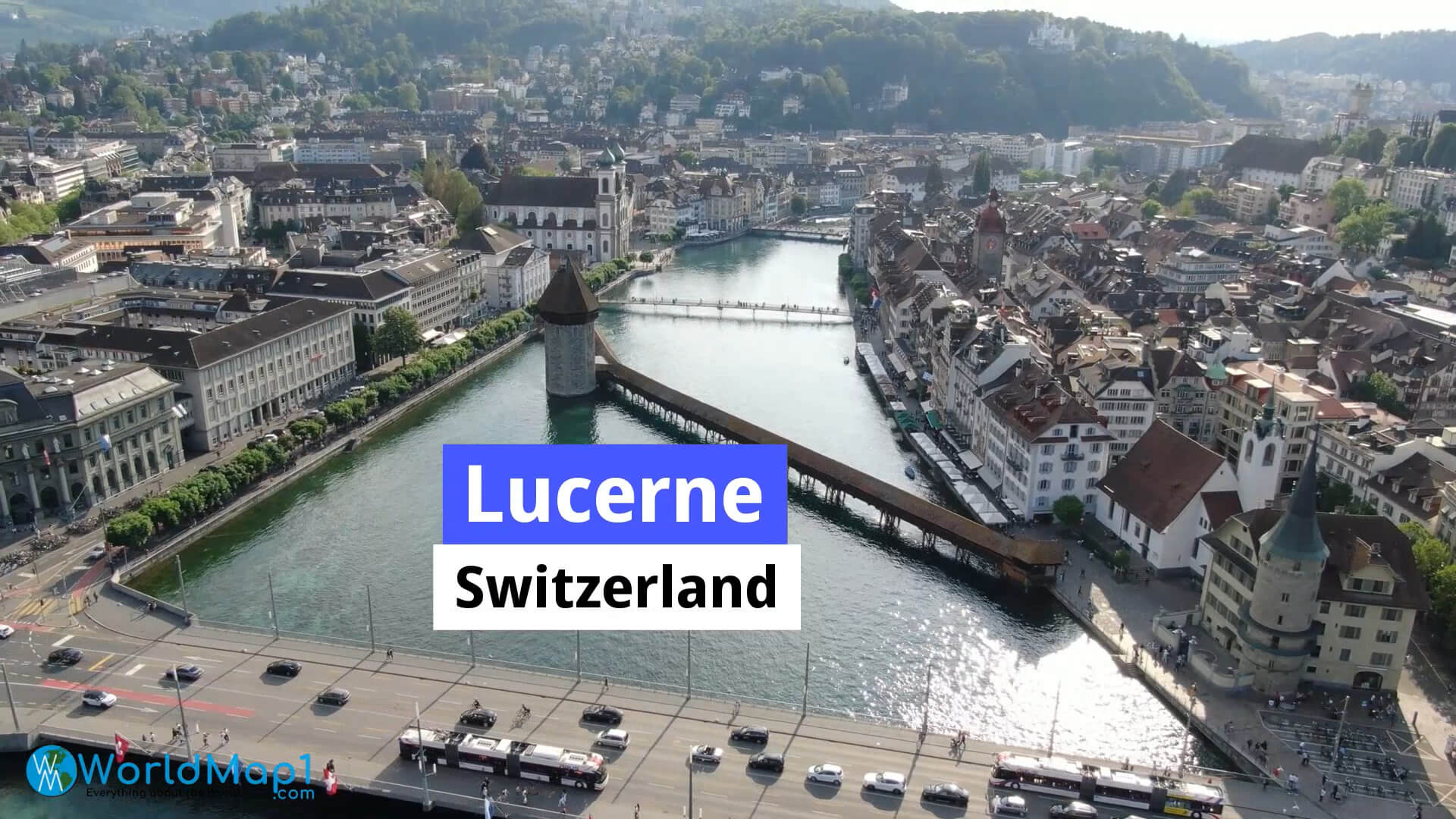
Mount Titlis
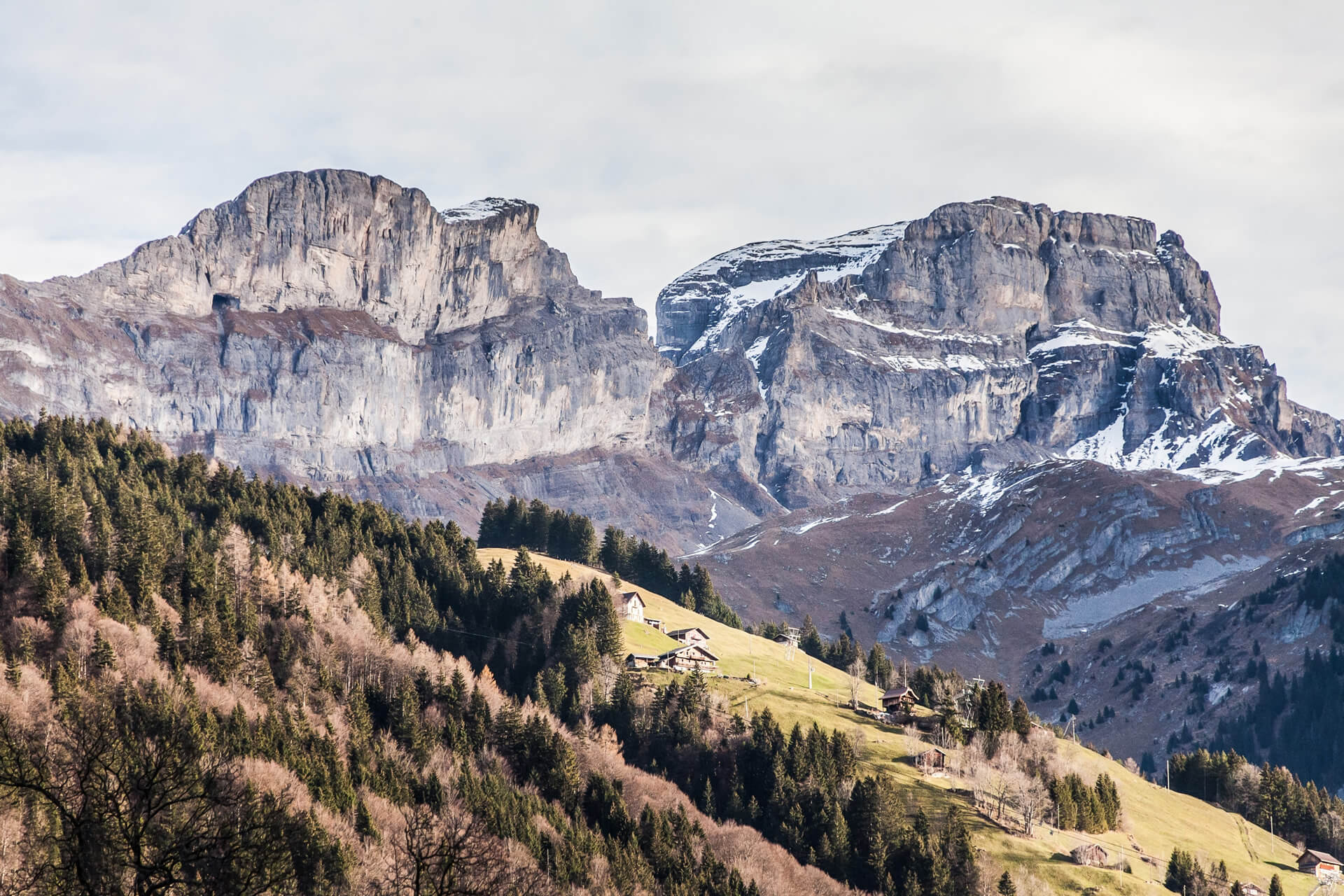
Pilatus Mountain in Luzern
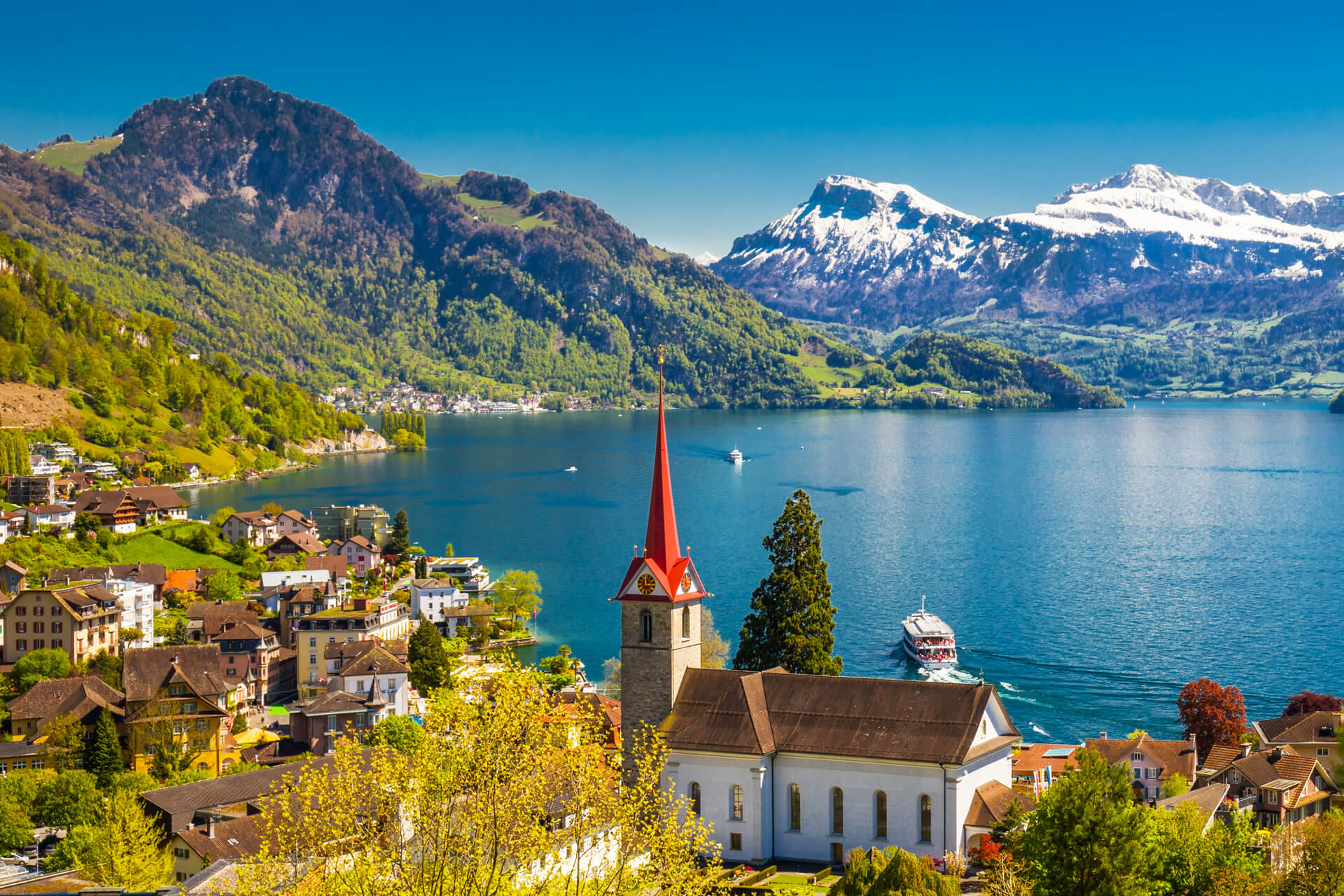
Top View of Luzern Switzerland
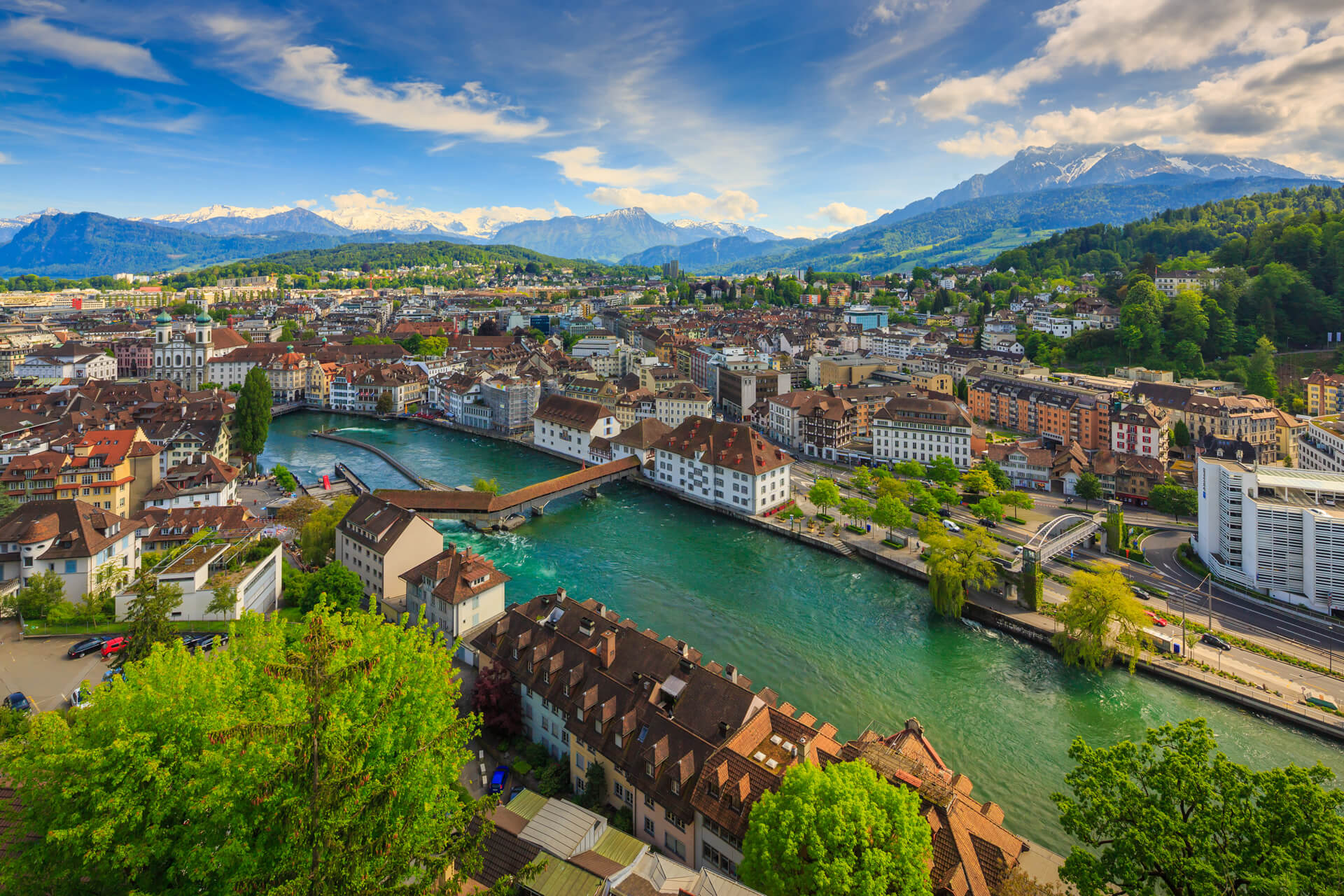
View of Engelberg valley and lake Trubsee from Mount Titlis Switzerland
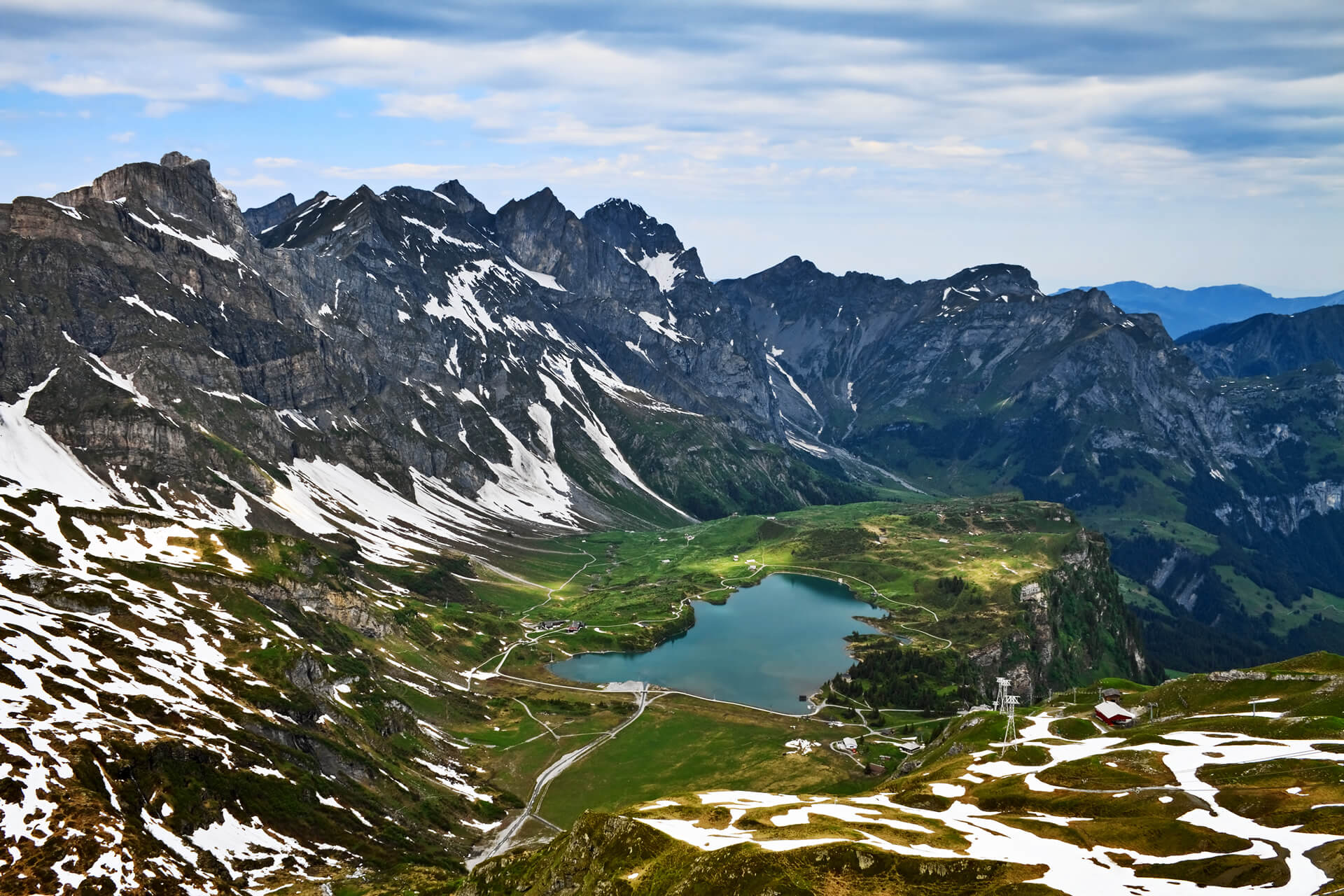
View to Pilatus mountain and historic city center of Luzern
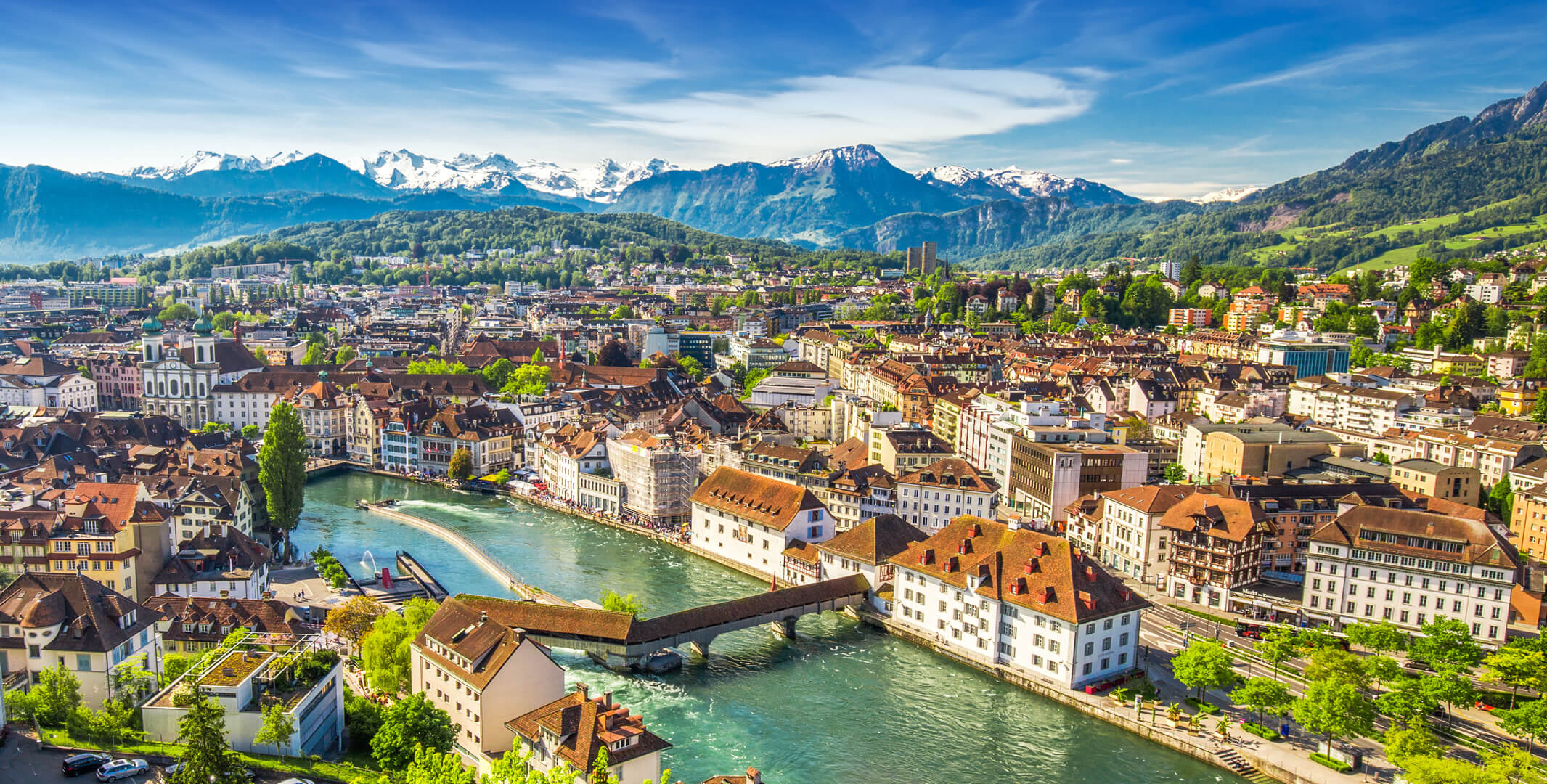
Weggis Lake Lucerne
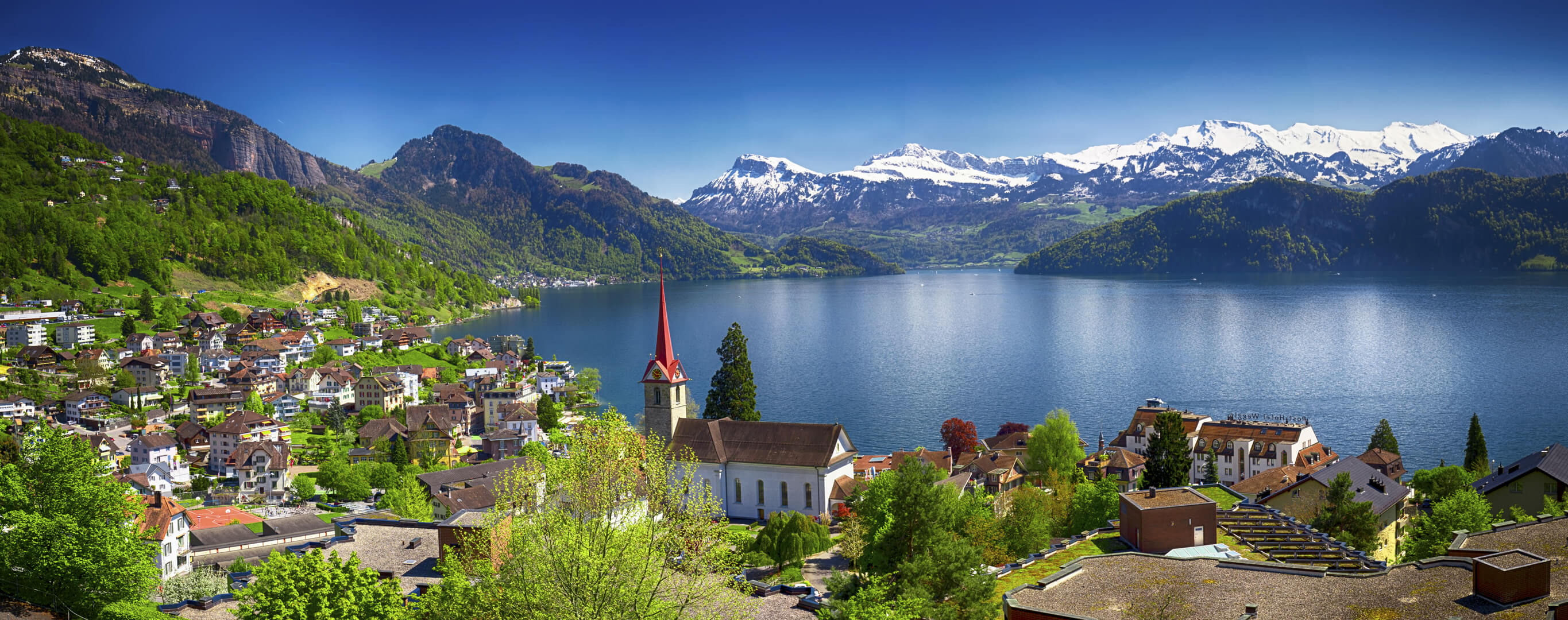
Winter in Lucerne Switzerland
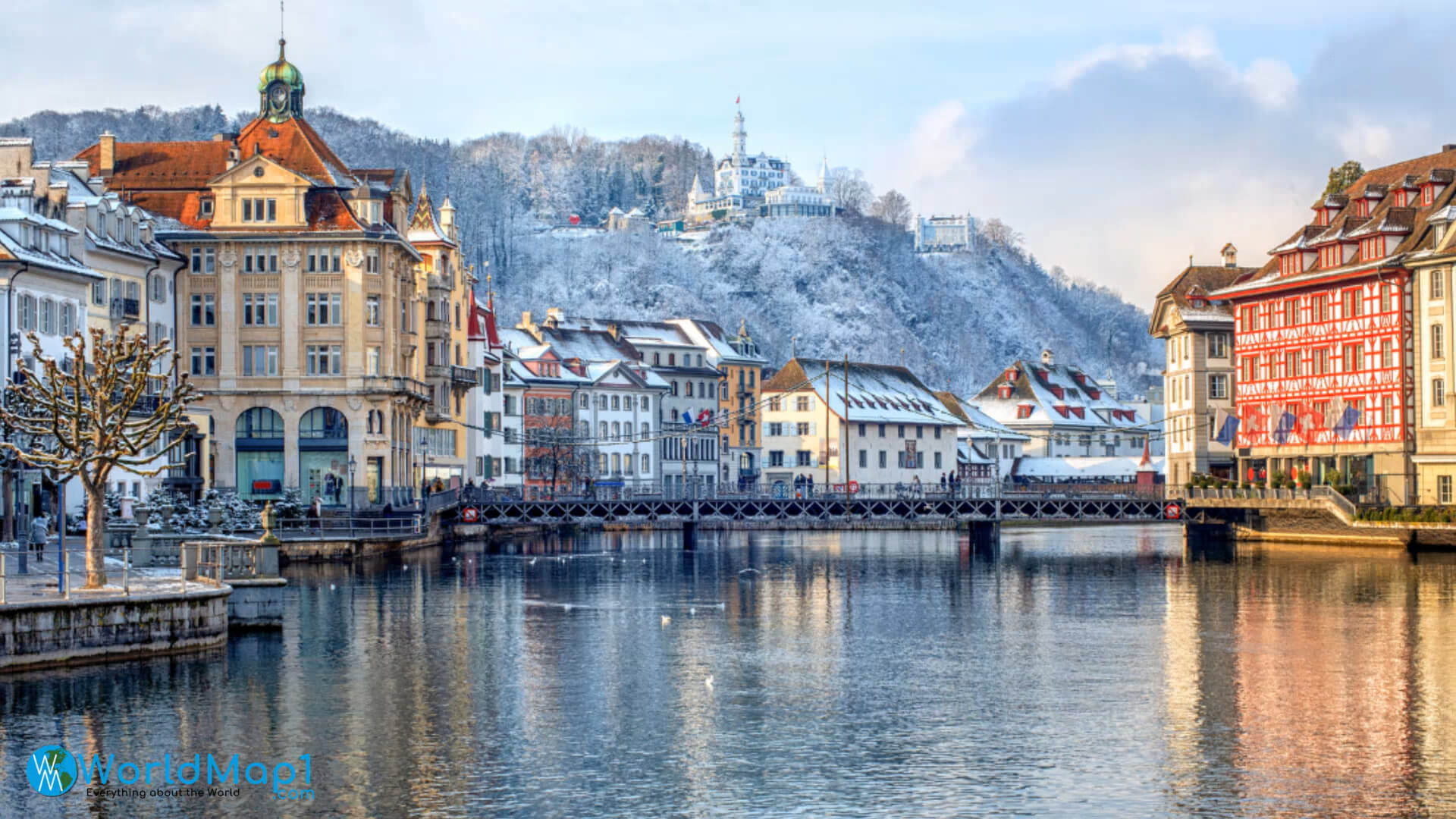
Lucerne City Lake and Mountains View
